#the most Deep Dive into American high school culture??
Explore tagged Tumblr posts
Text
Seeing Lou and Siobhan fight over whether raspberry mustard or grape jelly is more weird is so funny because I have never heard of either of these things.
This season is just The Most cultural study into both American culture and British culture, because this is like the fifth thing to come up this season where Siobhan is weirded out by American culture and the others are in return weirded out by whatever British thing Siobhan brings up to counter and I am just sitting there, weirded out by both but also deeply fascinated by them.
#Adventuring Party#Fantasy High Junior Year#American Culture#British Culture#Food#it's wild though because I spent... all my life#watching American movies and TV shows#many set in high schools. yet I feel like THIS is#the most Deep Dive into American high school culture??#and it UTTERLY FASCINATING#and also disturbing and confusing and unsettling
27 notes
·
View notes
Text
Why We Love the Boys

As promised, here is my review of Supes Ain’t Always Heroes. I actually used to write book reviews in my high school journalism days, so here we go!
What this book is: A masterful deep dive. A study on character psychology, the source of the comic and show’s inspiration, and the narrative themes illustrated in The Boys that parallel American culture and our real lives.
It includes interviews from one of the comic’s creators, Darick Robertson, The Krip himself (Eric Kripke), and actors Jim Beaver (Robert Singer), Aya Cash (Stormfront), Chace Crawford (The Deep), Jessie T. Usher (A-Train), Nathan Mitchell (Black Noir), and of course, Jensen Ackles (Soldier Boy).
It also includes a small but significant ode to the creativity of fans and fandom (with a mention of fanfic writers)!
I’ll admit, I felt seen. 😊
Who wrote it: Psychologists Lynn S. Zubernis and Matthew Snyder, among several other contributors. Zubernis is a self-proclaimed fangirl of not only this show, but also of Supernatural and Eric Kripke in general. (That aspect definitely comes through in her writing.)
She is also editor of Family Don’t End with Blood: Cast and Fans on How Supernatural Changes Lives and There’ll Be Peace When you Are Done: Actors and Fans Celebrate the Legacy of Supernatural—both of which I now want to read.
As I mentioned, several other authors also contributed to this book, as their expertise and backgrounds lend to the subjects they’re covering, such as racism, sexism, the entertainment industry, the comic’s inception, and more.
Who wants to read this book: Anyone who enjoys learning about what makes characters tick. What drives their choices, their sense of morality and justice, and their trauma and strife that lead them to do heinous things. This book will help you better understand your favorite characters (and how to write about them).
Perhaps most importantly, this book is for anyone who wants to read it put into words, why many of us love The Boys, as well as Supernatural.
In a way, the latter is more escapism entertainment than The Boys. Because in this show, there isn’t much, if any escape.
Despite this being a “superhero show,” as we all know, it’s so much more than that. It’s a mirror held directly into our own faces: about why we enjoy heroes and antiheroes, and excuse the “bad behavior” of the ones we like.
About mental health, grief and loss, nature and nurture, coping mechanisms and the importance of choice in dealing with trauma; of racism, sexism, misogyny, weaponized social media, politics, corporate greed, and the power (and cruelty) of good marketing.
This book explores the true villain of the story...and it ain’t Homelander.
I’m going to get into my favorite aspects of this book—as well as an amazing chapter on Soldier Boy’s character study (and why we love him, perhaps too much).
There was also one small, but key thing I would add to that argument. But first...

The Mirror of The Boys on Screen
This world is a gritty, bloody, and at times all-too realistic take on how superheroes would be if they lived in our world.
They are the worst of celebrities, professional athletes, and politicians all rolled into one. They are the shiny products of a company and are marketed as such—and worst of all, they often buy into their own hype.
Some of my favorite quotes on this topic:
“The Boys often reflects darkness in our real world that is uncomfortable to watch. While we go through the tedium of our daily lives, trying to get by and using television or comics as an escape, it can feel difficult and overwhelming to confront the very real and insidious sources of authoritarianism, nationalism, and corporatism that are not just part of a story. “This show holds up a mirror and forces us to catch a glimpse of things we need to question, and asks us why we so easily believe the talking points of systems with marketing departments and press flacks behind them that carefully massage every word in order to get us to feel enamored with their product or policy.” (p. 227-228)
“The Boys works to reveal the nonaltruistic, sociopathic nature of contemporary US corporate culture. In a sense, The Boys uses the behavior of its characters to diagnose not an individual, but a culture.” (255)
In studying narrative I’ve learned that the best fiction and art serve to reflect the human experience. In this case, it’s something The Boys does expertly, even though it’s packaged in extreme, shocking, and often uncomfortable ways. But also in brutal, hilarious satire that’s fun to watch.
It “exposes real-world abuses, revealing many” of our own frustrations in American culture and in life in general (267).

Major Themes & Questions Explored
Several Boys themes are explored from a psychological, cultural, and narrative point of view, as I mentioned earlier. These are some of my favorite segments:
Toxic Masculinity & Narcissism
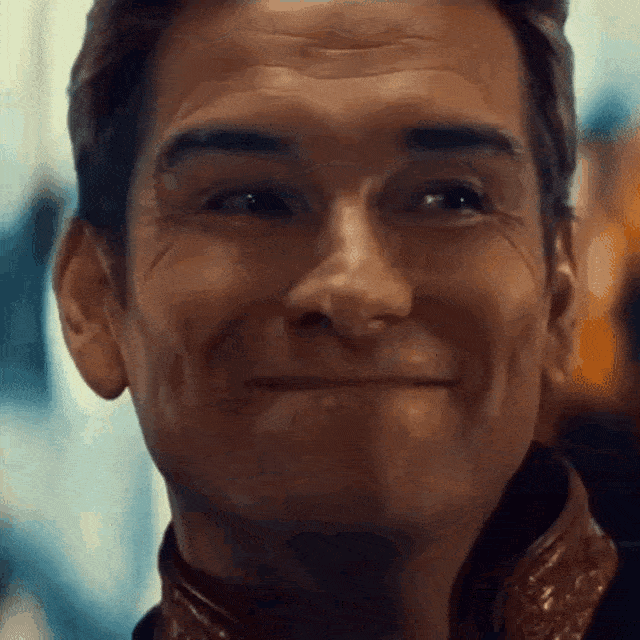
A whopper in The Boys, and the main theme of season 3. This book defines clearly what both of these words actually mean from a psychological point of view.
It also takes the bad taste out of your mouth that you might get from just hearing the words “toxic masculinity,” as it’s a phrase that can be carelessly thrown around to describe men and character traits that aren’t truly toxic...
How being emotionally available to your loved ones and not repressive of your feelings doesn’t make you weak, or less of a man. And how “being strong” doesn’t mean being physically violent and domineering. (AKA: the Big Swinging Dick™️ in the room.)
Narcissism is explored in a very interesting way. The book gives a diagram of different aspects of narcissists and how each character (Soldier Boy, Homelander, Butcher, and the Deep) falls into them.
Soldier Boy, for example, is classified as a “Classic Narcissist,” while Homelander a “Malignant Narcissist.” <- This will play into Soldier Boy’s character study, and the main difference between Soldier Boy and Homelander.
Butcher, however, displays narcissistic tendencies but is not, in fact, a narcissist. (More of an antisocial sociopath. Yay for him.)
Misogyny & Sexism

The classic superhero world of comics dates back to the 1930s and ‘40s. It has been, and in many respects still is a (White) male-dominated industry, where in narrative, female superheroes typically work under a male leading the team, as in Justice League, Teen Titans, and the Avengers.
As much as I love DC and Marvel comics, female characters have also been depicted wildly sexual for male readers and the male gaze, and non-supe characters have been written primarily as love interests and damsels for the hero to save. (Think Lois Lane, Lana Lang, and Mary Jane.)
Modern adaptions have given female characters more agency, but their foundations were rooted in underlying sexism and the mythic hero—an Odysseus-type with certain characteristics of male strength and heroism; and that goes all the way back to classic literature, like The Odyssey, Beowulf, and the Epic of Gilgamesh.
In The Boys, the female supes go through the same issues as their comic counterparts. They are treated how women are treated in the real world—marketable as sexual objects. Starlight’s forced costume change is a prime example.
Author Danielle Turchiano argues in the book that the women in power at Vought (Madelyn Stillwell, later Ashley) are given only so much power as men like Stan Edgar and Homelander give to them.
Stillwell, Ashley, and even Stormfront “drink the Kool Aid” of the misogynistic infrastructure of Vought, but they’re not truly “powerful” in and of themselves (112).
I would add that the only female characters that have or find true agency are Grace Mallory, Annie January/Starlight, and Maggie Shaw/Queen Maeve. Even Victoria Neuman is trying to work the political schematic and Vought by operating within the system Vought has created.
Mental Health, Trauma & Unhealthy Coping Mechanisms
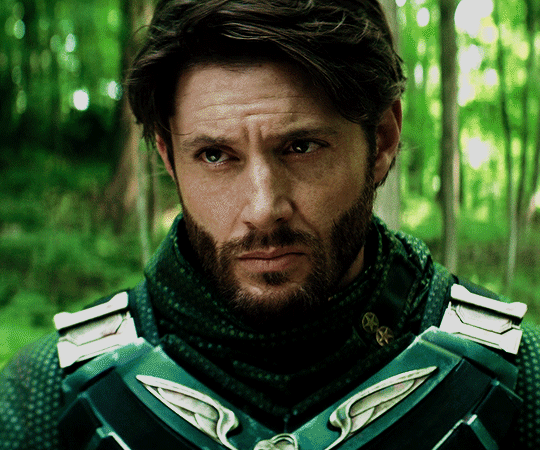
This is a huge section, and rightly so. It kind of spans throughout the book, really, because all of these characters have traumas that inform who they are as adults making the (often grotesque) choices they make.
For many of these characters, it stems from their upbringing and fraught relationships with their parents, whether explicitly or implicitly explored in the show.
Butcher: Is an antisocial sociopath with narcissistic tendencies. Arrogant, emotionally manipulative, violent, and obsessive. He was also physically and emotionally abused by his father, led to use drinking and violence as a means to cope and express himself. His rage is so deep under his skin—he loathes himself for it (and his father), but struggles immensely to escape it.
Homelander (John): A malignant narcissist, the height of arrogance, and emotionally manipulative. He lacks empathy for others' pain, and in fact enjoys inflicting it. Yet according to Jonah Vogelbaum, "John" was a sensitive, gentle child who only wanted connection and love. Vogelbaum raised him like a lab rat and fostered him in a cold, detached cell. He was raised to be entitled and to believe he was an all-powerful god, the lord of his own kingdom within his mind, excused from the responsibility of his actions.
Soldier Boy (Ben): Also a narcissist; violent, arrogant, misogynistic, and often indifferent to the damage he causes, emotional or physical. Yet he was also emotionally abused by his father, who set high and exacting standards for what it meant to be a man. It drives Ben to try and prove his worth to his father, though he’s never able to. It fosters the lack of self-worth he probably feels as he seeks validation through fame, and what he believes power to be.
These three characters have many similarities, but also notable differences that set them apart from one another. And both Butcher and Soldier Boy use substances like drugs and alcohol to cope with their traumas—ones that their forced stoicism and sense of manhood won’t allow them to easily express.
“We see Soldier Boy use substances almost continuously in season three to deal with his PTSD from the childhood emotional abuse he received from his father, the betrayal and assault from his team, and the torture he endured from the Russian scientists.
“In the short term, the use of drugs and alcohol to avoid thoughts and feelings about traumatic experiences can be felt as helpful, but in the long term, it hinders one’s ability to process emotions and can cause a deeper depression from the guilt and shame of both avoidance and substance abuse.” (27)
Heroes, Antiheroes & Villains

This book explores two key questions that the show encourages you to think about:
Who the hell is the hero of this story?
And who is the villain?
The surface-level answer is that Homelander and other supes like him are the villains, and Butcher and his band of bros are the heroes (or antiheroes). But they commit just as questionable, sketchy, and downright murderous acts as the supes they’re trying to take down.
“Butcher is not really a good guy. He’s manipulative and self-centered. His reasons for wanting to take down Homelander are utterly personal. That it serves the greater good is almost a coincidence.” (9)
And if Butcher is not a hero, but a vengeful vigilante, then why do we root for him so much?
Well, we see his incredible flaws, of course, but I sympathize with his struggle in losing his wife and the life he could've continued to have with her. I root for the underdog going against the hydra head of Vought and the psychopathic Homelander.
I see in Butcher, as I also do with Homelander and Soldier Boy, their traumas and their internal conflicts, their deep-rooted self-loathing, and a desire, deep, deep down…to be loved.
(And to foster connection with others, even if they’re unable to sustain them.)
On the flipside, we have antagonists in this show who do truly heinous things. What makes them compelling even sympathetic at times, yet again, are their painful upbringings that have shaped them to be who they are. The supes of this show are byproducts of being treated like products.
Like the saying goes: Villains aren’t born, they’re made.
That’s why the real villain of this story is Vought International. It’s an allegory, and an indictment of the ruthless corporate greed that pervades American culture—and much of the world.
It’s why Stan Edgar is sometimes scarier to me than even Homelander (and was the true villain of my story, Break Me Down), if far more insidious.
Speaking of BMD, let’s get to it, shall we?
Here’s a (lot) bit about the Soldier Boy section of the book.

Soldier Boy: Why We Can’t Hate Him
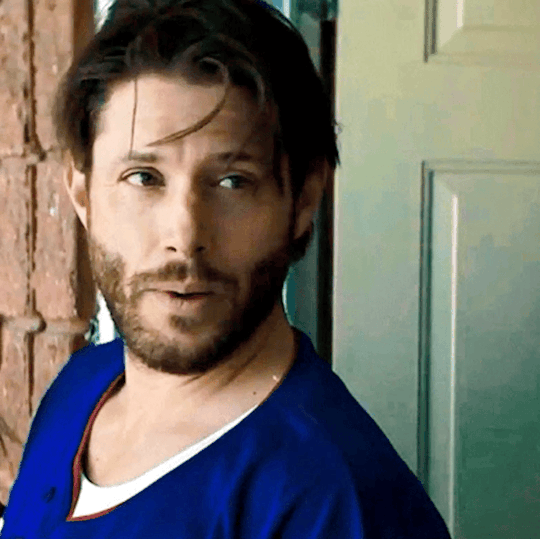
I had to laugh out loud at the title of Soldier Boy’s chapter:
Loving the Villain: The Confusing Case of Soldier Boy
I’m not gonna lie. I felt called out. 😂
It is a confusing dichotomy. Soldier Boy is an absolute asshole. Misogynistic, narcissistic, arrogant, callous, violent…
But also deeply traumatized, a man-out-of-time, emotionally abused, a byproduct of the historically and culturally different time he was raised in, a man who just doesn’t get it…
And also charming, adorably grumpy, and undoubtedly attractive.

It’s hard to indict “Ben” as an unredeemable villain in the same way I do Homelander, the psychologist-labelled Malignant Narcissist.
Therein lies the main difference between Soldier Boy and Homelander: Soldier Boy doesn’t seem to take joy in harming others the way Homelander does...but, Soldier Boy still harms people, whether he means to or not. He is arrogant and callous, deeply traumatized and vengful.
Zubernis confirms many of my own conclusions and ideas about Soldier Boy, and why I still rooted for him to be better, and didn’t want him to die at the end of season 3.
As Zubernis rightly exclaimed during her own watch of the finale: “Noooo, don’t kill the Danger Grandpa Baby Murder Kitten!” (175)
Because Jensen did what he does best in his roles: He made us feel Ben’s pain.
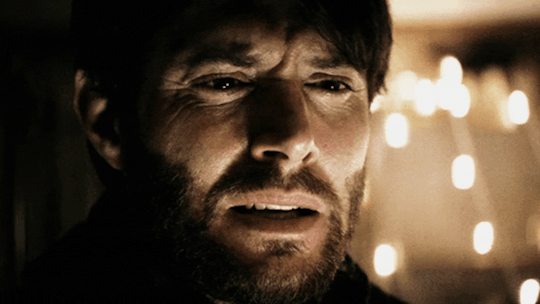
“What’s funny is, in regard to Jensen playing Soldier Boy, you know he’s fucking fantastic, he’s just so good at bringing the audience, and it’s almost like—what I laugh about is, he was probably a little too good at his job!” Kripke said. (180)
And he continues, “In part it’s because of the fandom. So many people took his side in the finale, they’re like, Were’s on his side, fuck everyone! And you’re like, but he’s the bad guy and he’s trying to kill a ten-year-old.”
Were there fans who held this viewpoint? I’m sure. There are some radicals who don’t care about the humanity of characters or story and will side with their favorites, come whatever. But while I can’t speak for others, that’s not how I interpreted that moment in the season 3 finale when I watched it for the first, second, and even third time.
Yes, I think Soldier Boy was wrongfully willing to fight Ryan after cruelly batting him away. Do I think he would’ve killed him? I’m not sure. I think he would’ve continued to do what he had to do to get Ryan out of his way in his fight with Homelander. Maybe he would’ve been more violent than he intended, in the callous collateral damage he’d shown throughout the season. Maybe he would've held back at the last second. Or maybe he would’ve gone that far, if provoked.
It’s a tough call, as I think this character can go one way or the other in terms of his “villain” nature. We just haven’t seen enough of him in the series yet for me to make that conclusion on the canon-version of Soldier Boy. (In fanfic, I’ve explored my own interpretation.)
But overall, I think The Krip underestimated the power of Jensen’s acting.
…And the ardent nature of his mostly female fanbase. 😂
Why We Love Soldier Boy
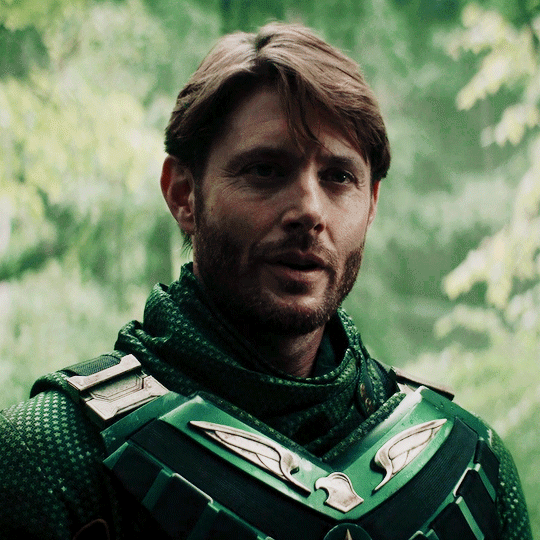
The author cites multiple reasons for why we love Ben more than we probably should:
It’s Jensen Ackles: Fair enough. His talent speaks for itself.
Soldier Boy’s backstory: He was emotionally abused by his father and as a result, he has a complex regarding his self-worth, “something to prove,” and I would imagine a secret need for attention, validation, and praise.
He has trauma and PTSD: He is displaced from what is familiar to him and confused when the boys find him, and that is the least of it. He’s been tortured for 40 years. Can you even wrap your mind around that? (*cough cough Dean Winchester in Hell cough*)
He’s charming: In a sexy grandpa, adorably grumpy, lovable asshole kind of way.
We’re drawn to danger: Dangerous “edgy” types are fun, especially when you’re physically attracted to the character.
He has his moments of vulnerability: Jensen’s ability to play the nuance in the character is the ultimate draw. I felt his pain, could see his torture, and his resulting PTSD. He even admits that he longs for a family, even if his ability to bring up those children is questionable at best. 😅
But I think the one aspect that can also be considered is the character’s capacity for change.
Soldier Boy’s Potential
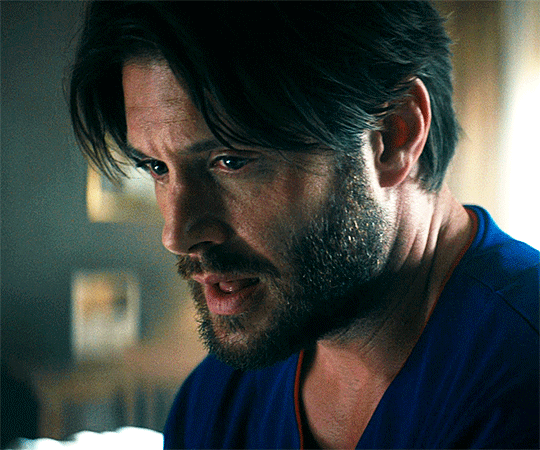
Again, I don’t think you can write off Soldier Boy’s potential for positive character development the same way you can Homelander, or even Butcher.
For one thing, we just haven’t spent enough time with the character. In season 3, a lot of his collateral damage after he escapes imprisonment has been accidental, or PTSD-induced. Though we can’t discount how he murdered M.M.’s grandfather via collateral damage (and was callous about it).
I think this is what drew me to write about Soldier Boy. For all his arrogance, his chauvinism, his massive ego and general bastardry, there’s still humanity in Ben.
In the book, Nathan Mitchell says something amazing about his own character (Black Noir) that resonated with me about Soldier Boy as well:
"One of the ingredients of a compelling character is contradiction. How does one aspect of our personality contradict with one another? [...] Who is he underneath? How might his true nature contrast with the demands of his job?"
Or coded for Soldier Boy/Ben: The pressures he puts on himself to be the type of man he thought his father wanted him to be.
Again, his sexist, misogynistic ideals are shaped by the time he was raised in, by being a product of Vought, and of his father’s emotionally abusive upbringing. Does this excuse or justify all of his behavior? Of course not.
But I do think those 40 years in captivity changed him from the careless alpha dog we saw in 1984 Nicaragua…
He admits to Crimson Countess, with tears in his eyes, that he’d loved her. That he waited for her and his team—arguably the only social system he had in his life—to save him. He’s gutted to realize that not only did she and the rest of the team never love him, they hated him. They traded him for nothing. Just to get him out of their lives.
For all he claims to be afraid of nothing, tough as shit, he is afraid when he goes to face Mindstorm. He knows what the supe is capable of, and he visibly takes a shaky breath and tries to steel himself.
For a moment, he drops the “Soldier Boy” persona that he wears like that fine tailored suit, and he tells Butcher that the backstory Vought created for him was a lie; he grew up a rich kid who got sent to boarding school, but flunked out, because "he was a fuck up." And his father couldn’t be bothered to lay a hand on him, implying he didn’t care enough about his own son to "discipline" him.
He is reluctant to kill Homelander when he finds out he’s Ben’s son (sort of). He even claims that he would’ve been willing to share the spotlight “with his own son.” — Something I doubt even Homelander would do.
Ben even seems to be fighting tears when he levies the same vitriol at Homelander that his own father did at him:
Homelander: “Weak? I’m you.” Soldier Boy: “I know. You’re a fucking disappointment.”
Let me be clear. I don’t think it’s up to someone to change him (like a love interest). I don’t subscribe to that thinking, that a woman can “change” a man.
For example: In season 2, Butcher tells Becca, “Who was I before you? Nothing.”
And yet, she tells him that he put her on an unrealistic and unsustainable pedestal, in which she felt like she wasn’t allowed to fully be herself, unable to keep him from flying off the handle in rage. That kind of relationship (where one is dependent on the other to “keep them in check”) doesn’t work as a lasting, satisfying redemption arc, and it often doesn’t work in real life either.
I do think, however, that a person is capable of change if they’re broken down enough (pun intended), and if they themselves have a desire to change. Someone they encounter can inspire them to be better, like Butcher with Hughie. That person can help support the other.
At the end of the day, however, it’s Ben that has to want to change.
If he wants love and connection, he’ll have to somehow want it, and try (and sometimes fail) to get it, thereby giving him agency and a redemptive character arc.
Now, obviously, it’s up to The Krip where Ben goes from here. He seems to have a more indicting vision of the character than I do (at least, so far). But we’ll see! The fan demand to bring back the character has already had Kripke confirming that Soldier Boy will be back.
Maybe it will encourage him to give the character a more satisfying ending than Dean Winchester got in Supernatural. Though granted, that one wasn’t his doing, apparently he was in favor of that ending, which ultimately culminated 15 years of monster slaying and broments under Baby's roof.
Comparing Dean & Ben
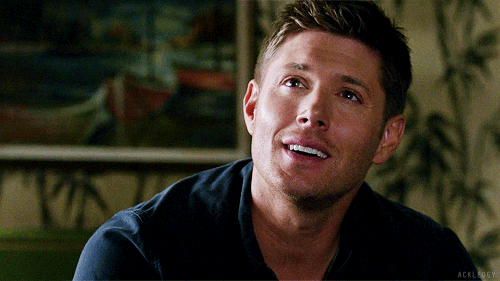
In his interview segment, Jensen talks about what, if any, are the comparisons between Dean Winchester and Soldier Boy. AKA: Wanting a father’s approval, and an undercurrent of “John Wayne”-esque masculinity in John Winchester that Dean sought to emulate.
Jensen also talks about where he drew from to not only embody the character of Soldier Boy, but bring nuance to him—and show the peeks of vulnerability under the bravado and stoicism.
“He’s so fragile and his ego is fragile. Just like Homelander. These bigger-than-life powerful heroes really have a glass jaw… “And everyone walks on eggshells around him [Soldier Boy], and they tell him that they love him, and it’s the same with Homelander. Then when all of a sudden he faces his old team and Crimson Countess says we never loved you, we hated you—that’s a gut punch for him. Because even though on some level he may have known that, he never thought he would hear it. “And he probably propped himself up around trying to believe otherwise, because how can you walk around knowing everyone you’ve ever cared about hates you? It’s too painful.” (191)
It really is. I inherently felt this about Soldier Boy (Ben) when I watched season 3 for the first time. That’s exactly what I got from his performance and thought, there’s more to this guy than the toxic masculinity he represents.
This guy just wants to be loved, like everyone else. He wants to feel important, and even after his father’s dead, “show him” that Ben is the man his father wanted him to be. And so, he bought into the illusion Vought painstakingly crafted for him.
Whether he can come back from that remains to be seen, but I choose to be optimistic until evidence points to the contrary. 😅 (Maybe we’ll see in season 4!)
So that’s my personal take on Soldier Boy and this awesome book. 💚 Thank you again @kaleldobrev for recommending it to me! I hope you all enjoyed my long-winded review and want to check this out.
And if you do read it, let me know! I hope to read your thoughts as well!

Tagging people who said they wanted to read my review on this book: @venus-haze @jessjad @kristophalis @sl33pylilbunny

#supes ain't always heroes#book review#why we love the boys#the boys#my take on Soldier Boy#boys psychology#character study#cast interviews#jensen ackles#soldier boy#Homelander#billy butcher#aya cash#stormfront#jim beaver#robert singer#nathan mitchell#black noir#chance crawford#jessie t. usher#the deep#a-train#book rec#zepskies reads#zepskies reviews
132 notes
·
View notes
Text
Aventurine is Rom-Coded
Back on my bullshit with more over-analysis for my best blorbo LET'S GO
DISCLAIMER I am not Rom, I am just an interested party, pls correct me if i'm wrong or disrespectful here it's been a long time since I got to deep dive this topic. Will be also discussing the slur as context with full knowledge of the context. ALSO I am BIASED take this with a barrel of salt, and I haven't cited my sources since I did this research in high school for writing Dick Grayson fic okAY HERE WE GO
So like, can we talk about Sigonia??? Like???? What the fuck kind of culture has "may your schemes remain hidden" as a general wellwish? Can we talk about how "Sigonian" is a slur????? and ALSO they are so Rom-coded, CAN WE TALK ABOUT THE CULTURAL GENOCIDE PARALLELS PLEASE--
So FIRST OFF, Romani != Romanian, Romani != "gypsy", Romani != criminal. Romani is a tribe, is a culture, is a way of life. It's nomadic and art-centric and Romani, as a language, is not Romanian, no matter what some folk use in fic (sources: 1, 2, 3). It's a language that borrows from most European languages, and because Rom are nomadic, they then spread that back to those countries. For example, the English word "love" is used in Rom to mean "money," possibly the basis for the idiom "show me some love" meaning "pay up". (also, side note: as there are different groups and traditions, there are some pretty widely varying dialects; here's some more about that if you're interested.)
The Rom culture involves moving on and traveling. This is fascinating for townies (derogatory) and for the vast majority of people because it's an alternative lifestyle, and often children or teens or young adults would fall in love with the people or the lifestyle and follow the caravan, at least for a while. This led to the Rom's reputation as babythieves and childstealers. "Lock up your children," people used to say, "because the gypsies are coming to town." Maybe some caravans did take kids, we don't know, because fresh blood is important to continue family lines? But citation needed and A N Y WAY
So the Rom would roll into town, half-show and half-trading, perform for money, spend money, and move on. Because they were transient, there was less pressure to maintain a reputation, and a lot of the "tricks" and bad trades led to the term "getting gypped" being coined from the word "gypsy," which is why it's a slur; it literally means "someone who is intending to steal from you". One such common trick was Ekkeri, akkery, u-kéry an, which was a "magic spell". Put your money into this handkerchief, say the spell, it doubles. Do it again; it doubles again. Oh, you want me to do it with all your life savings? Sure, here's the hankie, the longer you wait to open it, the more it'll grow, buh-bye! Ekeri Aikeri is likely the original basis for the common rhyme Hickory Dickory Dock, and like all nursey rhymes was presumably a warning: if you hear this, be wary. (sources: 1, 2, 3)
So the Rom became more and more marginalized, and as any marginalized group will tell you, that's not a winning recipe for longevity. There's currently an inherent, unexamined bias all modern kids are taught, to be wary of strangers, to be wary of "gypsies" because they're enchanting magical creatures who will walk into town one day and leave with your money or your heart or your dreams (see Shakira's Gypsy), but they're not, the Rom are people, and people are not one thing. The stereotype of a "gypsy" is constantly enforced and as the population dwindles, more and more people are assuming that the Rom aren't real people, that the way of life has died out, and why be careful when there's no one left to harm? Only there is and they are trying but they no longer have the infrastructure to support themselves outside of society and they have to give up their culture to be a part of society because society thinks they're extinct fairy tales. It's a lot like what happened with Native Americans in the US, except that there were more Native Americans, they had settled land and history, and they fought back. The Rom didn't have a place to defend because nomads, couldn't point to history because oral traditions, and now there's so little to prove they ever travelled the entire continent of Euraisa and spread culture and art and magic. The only things the wider world has left of Rom culture are in our words, and even then those are carelessly used and more weapon than word.
TL;DR I have a lot of feelings on this but LET'S GET TO AVENTURINE.
Unlike real Rom, he's got the eyes--everyone can see at a glance that he's a schemer, a liar, a storyteller and a gambler. He wears his heritage on his face and he doesn't try to hide it, just like he doesn't try to hide his serial number. Someone tried to own him, and he beat them. Someone tried to kill his culture, and he won't let it die. He's been a foreigner longer than he'd ever been Avgin, but that kind of heritage doesn't die, even when everyone else does. Take Sparkle looking at him and saying "What's one of your kind doing here?"
Sigonia IV is the planet; there were multiple races on it, according to the lore, and Aventurine was an Avgin, a race that was wiped out. "Sigonian" is like calling someone an "earthling"; you're not wrong, but you are grouping everyone in together, and the Avgin and the Katican are terrible enemies who would not appreicate that in the least, I assume.
In-game characters use "Signonian" over "Avgin" which feels like "gypsy" over "Rom". Aven is presenting himself as a "gypsy," letting people call him that, embracing the stereotype and leaning the fuck in because it's better to be a Sigonian than to let the entire Avgin culture die entirely.
It's a lot of weight to carry, but that's the thing about a magic trick: the real trick is hiding how hard it all is. Magic is the art of making the impossible seem easy and natural, after all; look at this shiny pretty distraction, isn't it flashy? Isn't it bright and pretty and so easy? Just a twist of the wrist to produce anything your heart desires, and never mind how long it took to set it all up (we'll discuss performative luck build next time!)
Anyway so that's my take on his identity and cultural issues; he's too visibly an outsider to ever be trusted, but he's too alone to ever be supported in a culture. He knows he's alone, and what's more, he knows that everyone is looking to him as their only example of what an Avgin is, of what they were. He is defining his entire culture, in defiance of society, and all he has to do that with is childhood memory. There's this fuckoff big weight on his shoulders which is part of why he can't die; his reputation is every Avgin's reputation, and he will defend that more bitterly than his own. Aventurine doesn't lose because Avgin don't lose.
#hsr aventurine#aventurine honkai star rail#i will keep talking about this as long as you let me really i will#let's discuss the inherent trauma of luck builds: why Aventurine isn't one#all in
24 notes
·
View notes
Text


Dolls brands I never thought I'd own, part 4: Global PenPals
Meet Amity Anderson!
This doll was a tough cookie to track down. I first stumbled across her last year while searching for a completely different doll on eBay. I thought she was adorable, but priced way too high, so I let someone else have her. When I saw her come up again recently for a lot cheaper, I lost the bidding war. When she popped up unexpectedly a third time, I managed to snap her up right away.
The first time I saw her, I was curious about her origin, since the listing said nothing about the brand, Global PenPals. I figured it was someone's small business, because it's an unfortunate truth that many, many 18 inch doll companies produce beautiful and quality dolls for a few short years and then go out of business. Because she certainly didn't look poorly made or low quality; she obviously had a lot of love put into her production. I could tell she had a really nice wig and a carefully sculpted, realistic face mold. She was meant to be more than just a toy, but a little friend as well. That's what I liked about her. She was special, rare, obscure, and unique. And as much as I love my American Girl dolls, I also love the rare and obscure 18 inch dolls that have fallen into my lap over the years through pure luck. That has turned me into a connoisseur of obscure dolls. The rarer, the better.
So for that reason I couldn't get her off my mind. I became very fixated on finding one. I did a Google search that brought up nothing but the listing for her, plus a few dolls with similar brand names, or sites for finding an actual human pen pal. But I noticed the listing photo included a picture of her box, which had the URL of the brand's website. It was defunct, so I plugged into the Wayback Machine at archive.org to see what I could find.
Keep reading for a deep dive into The Global PenPals.
(Hello to anyone in the future who might be doing a web search about this doll! I'm sure you've found little to no information. I've put everything right here for your convenience!)
...

The site's first snapshot was taken in February 2011. It has a very short intro:
"This site is dedicated to children everywhere. Autumn Woods and Amity Anderson will begin pen pal corresponding with children in other parts of the world. They will learn about different living conditions and diverse cultural traditions. Will they discover that children are the same worldwide? Come along with us and see!"
None of the links on the sidebar were archived by the Wayback machine, so I looked at the next three snapshots, taken in July 2013, January 2014, and December 2014 (the final snapshot).


Now this snapshot displays a lot more content, although once again most of the site didn't get archived. The intro is more or less the same. But now we can see illustrations of the two main characters, Autumn Woods and Amity Anderson.
Clicking through the "Meet and learn more about Autumn" graphic linked to a page that had biographies for both characters.

Autumn Woods introduces herself first. She was born in October, hence her name, but she loves Christmas more. She lives in Kennewick, Washington with her parents and younger sister, and likes her school. She's athletic and loves to do cartwheels. Her best friend Amity lives in Basin City, near the farm where her grandparents live. She doesn't know a whole lot about the world outside of Kennewick, so she's looking forward to making pen pals all around the world.

Amity Anderson introduces herself next. She loves living on a farm in Basin City, and most of the other kids at her school are also from farming families, or live in the area seasonally, which has made her curious about the lives of other children of different background. Her family grows cherries, and sometimes the crops fail due to weather conditions. They also have lots of animals including dogs, cats, and cows. She has a secret hideout in the hay loft.
The next page linked at the top contains all of the pen pal letters to and from Autumn and Amity.

There are 10 pages of these letters. The first letter is dated June 11th of 2011, and the final one is dated August 14th of 2013.
Next link is Marcia's Dolls.
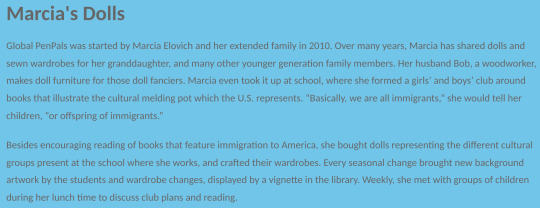

To sum it up, Global PenPals was started by Marcia Elovich in 2010. She had always sewn doll clothes for her granddaughter, and her husband built doll furniture. She used dolls to help schoolchildren learn more about the lives and perspectives of children all over the world. She modeled the dolls' faces on her granddaughter and niece, and hopes to introduce more dolls to the brand.
The next link is to the shop.

Only the Amity doll is being sold here. All the images are broken, but I can see that Amity cost $59.00.
The next tab, Media, is pretty much empty.

That's all that I can access with the Wayback Machine, but I didn't stop there.
I Googled Marcia Elovich and found the three Global PenPals books she has published.
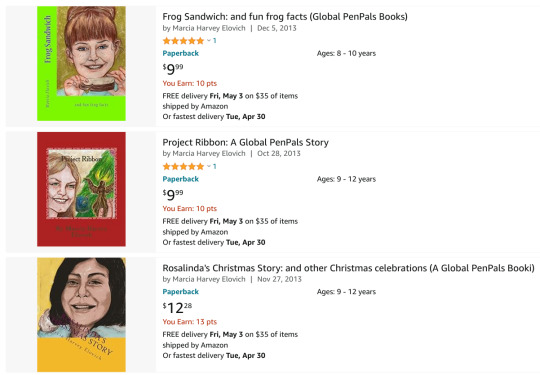
These are current, no need to use the Wayback Machine. Here's the link to the list if you're curious about the books. You can click through and read summaries of each.
"About the Author" on the second and third books:
Marcia Harvey Elovich has enjoyed interacting with children in family, at school and other community settings. When she began looking forward to retirement from the local school district, she set up a website around two fictional characters, Amity Anderson and Autumn Woods, using her granddaughter and her niece as visual models for the character images she draws. Through the website, Marcia continues to story-tell to youngsters and adults alike. Amity lives on the farm in Basin City where, in fact, Marcia was raised, and she pursues many of the same interests and activities Marcia did while growing up with her best friend Linda. Autumn lives in town and attends Amistad Elementary School, where Marcia formerly worked as a para-eductor, and earlier as a nurse in the Kennewick School District. This was the birthplace of her peaked interest in interacting with children and later-in-life interest in education. Marcia has recently begun manufacturing of the character dolls and is now converting the website stories into children's books. Also within the framework of her stories, Marcia has interactions from her personal pen pals with whom she is communicating around the globe. Through contrast and compare, she can better present awareness of how alike we are from country to country, culture to culture, religion to religion. "Perhaps the next generation will be more compassionate, not merely tolerating diversity but embracing it!" she adds. In their retirement, Marcia works with her husband and sidekick Bob, marketing her dolls and his woodworked doll furniture. She has one young adult son living at home and an older son living within the community. Her daughter and grandchildren live out of state, so she has to love them long-distance. Through Bob, she has acquired a second daughter who lives in the area and a step-son living out of state. Marcia specifically wants to thank her mother and father, Bob and Kay Harvey, for providing a childhood almost as colorful as the fictional one of which she writes. They gave to her, her three brothers and many childhood friends their mentoring in an era when the village actually did help raise the children.
I also found Marcia's Pinterest profile. She has pinned exactly four images.

The first two are the illustrations seen on the website. The other two are pictures of the dolls.
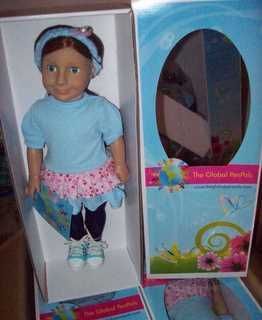
This picture's caption:
"Amity Anderson if one of the first two characters at www.theglobalpenpals.com and the first to be manufactured as a doll. She is vinyl with soft body and has beautiful peach complexion, with perfect detail down to tiny doll- scale freckles across her nose. She comes in clothes as seen, turquoise tennis shoes, and the matching elastic headband on her long, tangle-free auburn hair. I designed the doll after my own granddaughter. Lovely presentation box designed solely for The Global PenPals."
This confirms that the doll I have is indeed Amity, not Autumn as I had sort of guessed. Amity is illustrated with bangs, but it seems that changed at some point in the doll's design.
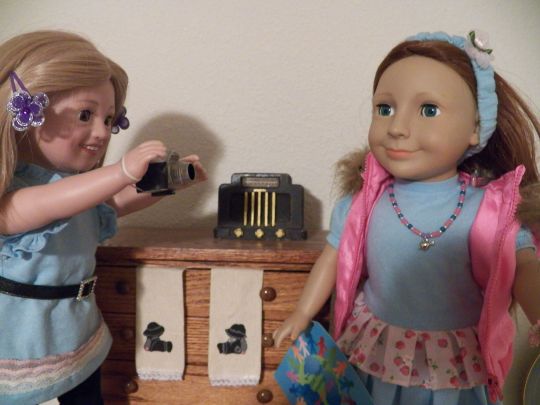
I guess that's Autumn on the left? I see no indication on the site or elsewhere that she was ever sold, so it's possible she never made it past the prototype stage.
There's very little else out there about the dolls. A few pictures on Worthpoint with captions stating what I've already put here.


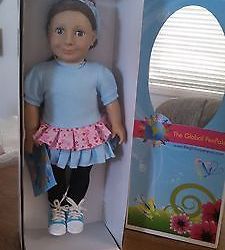
Amity seems to be one of those ultra-rare dolls that only a few collectors know about. After losing out on two other listings, I know that at least two other people do have one and know what Amity is worth. But I have no idea exactly how many dolls were ever produced and sold before the brand disappeared, which probably happened within three years of their debut.
I wonder if their failure may have been due to the price point, $59, which seems very low for a doll with such a nice wig, sleep eyes, a cloth body, a beautifully designed box, and proprietary clothing.
17 notes
·
View notes
Note
As of now I've been in the US for close to six months. When I first came here I was determined to not be judgemental. Whatever social media says you can't generalise any country. And I was right! I've met some amazing people here. I've met some really bad ones too. Shout-out to that white lady who called me a devil worshipper for saying I was not Christian like it was the Witch Trails era or that man in the grocery store who called me ch**k. However these are the outliers of my personal experience. But I've to say even after all that the things I found truly incomprehensible about the US is the little things. Why aren't the prices and other tax details printed on the back of the product? Why is your bread so fucking nasty? Why are the cashiers always standing? Why are the baby care things locked up in some supermarkets? Why does the state not do your taxes for you? Why is customer service so pushy and why do they all have to act cheerful?
And most of all, why do the vast majority of Americans I've met think vegetarian food doesn't taste good?
Yeah the US is a large and varied place.
As for some of your questions? I can answer them from my personal point of view which will, more than likely, leave out some nuance and deep-diving detail about the political and economical state of the country. Plus things can obviously change depending on where you live.
Why aren't the prices and other tax details printed on the back of the product? Prices and Sales taxes aren't printed on products because there's no set federal sales tax. So not only will a product's price vary depending on the store you shop in but the sales tax will be different depending on the state you're shopping in.
Why is your bread so fucking nasty? Because it's sweeter. They often add sugar to packaged bread to keep it fresh and soft so it's sweeter than bread outside of the US.
Why are the cashiers always standing? Depending on who you ask they'll say our cashiers stand because they bag items. But it's also this toxic work culture that's a huge part of the US where things like sitting while working is meant for people with "good jobs" like office workers. A cashier sitting in the US would/could be called "lazy" and companies would rather maintain a certain image than provide things for their workers to make their lives and jobs easier.
Why are the baby care things locked up in some supermarkets? To prevent shoplifting. Companies would rather lock things up to prevent them from losing what's essentially pocket change for them than work on lowering prices.
Why does the state not do your taxes for you? Stupidity and the US in general has a complicated tax system.
Why is customer service so pushy and why do they all have to act cheerful? The cheerfulness is normally because the employer makes it clear they have to present a positive face to customers. And there's also the fact that you're dealing with the public and a lot of people will take offense if they think you're not eager to serve them. Handling a customer quickly and getting them off the line so you can move onto another customer is often the goal. Customer service workers are generally meant to protect the company not the customer.
And most of all, why do the vast majority of Americans I've met think vegetarian food doesn't taste good? In my area a lot of that can be attributed to true vegetarian food tending to be either unavailable or overpriced. Cost of fruits and vegetables are high, there are a lot of places where fresh food not only isn't affordable it's just not available. And there are a lot of people who say vegetarian food is bad because they were turned off by the often overcooked, under-seasoned, and bland vegetable dishes a lot of them got as kids and teenagers both in and out of school.
48 notes
·
View notes
Text
Meaning/references behind every Gilmore Girls episode title - Season 1
Hi friends! In today's edition of I'm avoiding work and obsessing because I'm banned from rewatching until September (self-inflicted), I wanted to share my latest deep-dive project: making a clear, concise list of the meanings and references behind each episode title. I'm going season-by-season and filling in references when I catch them.
Some titles (especially in season 1) are quite obvious and literal, but many are clever references that emphasize themes and symbolism happening in the plot or character relationships. I like trying to figure them all out and wanted to share in case I have some wrong or people have caught references I've missed or didn't know writers may have spoken about, etc. ASP has such a deep well of pop culture knowledge, I enjoy mining it.
Masterlist: Season 1 Season 2, Part 1 Season 2, Part 2 Season 3, Part 1 Season 3, Part 2
My notes: - As always, please correct anything I've gotten wrong and share your own insight! - Many of these notes are pulled from and/or learned via annotatedgilmoregirls.com - an absolute icon! I claim no author originality. I'm just the one to compile/edit them. :) - So many of these seem deceptively straightforward... I'm almost convinced there must be sneaky references I'm missing with Kill Me Now, Forgiveness and Stuff and Christopher Returns especially... - This was the first time I realized the exact reference in Concert Interruptus and it's hilarious. I love when they get a little naughty/cheeky. - Looove the contrast between the happenings in Star Crossed Lovers and Other Strangers vs. S6's Written in the Stars. :')
Season 1
Pilot A “pilot” is a test episode for an intended TV series, an early step in series development, much like pilot studies serve as precursors to the start of larger activity.
The Lorelais' First Day at Chilton Lorelai and Rory both deal with Rory’s first day at her new school.
Kill Me Now "Kill me now" is a relatively common, ironic/humorous response to bad news or to a situation that the sender considers so bad that they would rather die than endure it. Likely how Lorelai feels about the idea of Rory’s golf date with Richard.
The Deer Hunters The title references The Deer Hunter (a 1978 war drama film co-written and directed by Michael Cimino about a trio of Slavic-American steelworkers whose lives were upended after fighting in the Vietnam War) as a joke about the deer hitting Rory’s car on her way to school.
Cinnamon's Wake Cinnamon is the name of Babette’s cat. A wake is a watch or vigil held beside the body of someone who has died. Possibly also a reference to the book Finnegan's Wake by James Joyce (an experimental novel with a reputation as one of the most difficult works of fiction in the Western canon due to its linguistic experiments, stream of consciousness writing style, literary allusions, free dream associations, and abandonment of narrative conventions).
Rory's Birthday Parties Rory has both a party thrown by her grandparents and a party thrown by her mother for her 16th birthday.
Kiss and Tell A common colloquialism referring to Rory’s first kiss with Dean. Possibly a reference to Kiss and Tell, a 1945 American comedy film starring a teenaged Shirley Temple. In the film, two girls cause their respective parents trouble when they start to become interested in boys. The plot interestingly involves an impulsive, secret elopement and accidental pregnancy drama.
Love and War and Snow Perhaps a reference to ”All is fair in love and war", a common proverb attributed to John Lyly's Euphues. “Love” referring to Lorelai’s blossoming romance with Max, “War” referring to the Revolutionary War reenactors and “Snow” of course refers to our first introduction to Lorelai’s love of snow and her insistence that good/important things have always happened to her on the first snow of the year - a theme that repeats throughout the series.
Rory's Dance Rory takes Dean to her first high school dance.
Forgiveness and Stuff This episode deals with multiple themes of forgiveness - Lorelai forgiving Rory for staying out all night with Dean, Emily and Lorelai forgiving each other for their fight about Rory and Lorelai being uninvited to the Christmas party, Lorelai forgiving Dean, and Lorelai dealing with lingering issues with Richard and how he raised her, perhaps forgiving him in a way.
Paris is Burning Paris Is Burning is an iconic 1990 documentary film directed by Jennie Livingston chronicling the ball culture of New York City and the African-American, Latino, gay, and transgender communities involved in it in the 1980s. This is the first episode where Paris gets a more humanizing backstory and causes trouble by outing Lorelai and Max’s relationship to distract from her own issues.
Double Date A common term for a date where two different couples go out together.
Concert Interruptus The title is a play on “coitus interruptus”, the technical term for the pull-out method of birth control. In the same way, The Bangles concert in the episode is interrupted when Madeline and Louise withdraw or “pull out” of the proceedings.
That Damn Donna Reed The Donna Reed Show is an American sitcom which aired on ABC from 1958-1966 starring Donna Reed as middle-class housewife Donna Stone. Although it was the first sitcom to focus on the mother as the central figure in a domestic comedy and paved the way for female-focused TV, it was commonly critiqued by feminists in the 1970s as presenting an idealized view of domesticity.
Christopher Returns This episode marks Christopher’s first visit to Stars Hollow and his seemingly first big return to Lorelai and Rory’s lives, much to the chagrin of every sane fan.
Star Crossed Lovers and Other Strangers In Romeo and Juliet, Shakespeare refers to the main characters as “star cross’d lovers”, meaning that their relationship is destined to fail no matter how hard they try. The phrase comes from astrology, meaning that the stars are working against them. The title is also a reference to the 1970 comedy film Lovers and Other Strangers, in which a couple’s upcoming wedding shines a spotlight on the marriage problems of their family members. “Star crossed lovers” can refer to multiple relationships facing troubles in this episode - Rory and Dean, Luke and Rachel, Lorelai and Max, Lorelai and Chase (the weird guy her parents try to set her up with), and of course, the lovers in the story behind the Founders Firelight Festival. This is especially endearing when you remember that, in contrast, the episode in season 6 when Luke and Lorelai go on their first date is titled “Written in the Stars”.
The Break Up: Part 2 This episode is the first to pick up exactly where the previous episode left off (Rory running home to Lorelai’s arms post-break up with Dean) in a kind of to-be-continued way, explaining the “: Part 2” in the title. There is also an episode of the classic 1970s sitcom The Jeffersons titled The Break Up: Part 2 where the Jefferson and the Willis families debate about getting Lionel and Jenny back together and George accidentally sets his son up with a sex worker. Perhaps a stretch to think it could be a reference, but ASP is a big sitcom nerd so it’s not out of the realm of possibility.
The Third Lorelai We are introduced to Richard’s mother, Lorelai “Trix” Gilmore; Lorelai’s namesake and therefore the third Lorelai in the Gilmore family.
Emily in Wonderland The title is a reference to the children’s book Alice’s Adventures in Wonderland by Lewis Carroll, commonly shortened to Alice in Wonderland. It’s an analogy for Emily finding Stars Hollow just as peculiar as Alice found the nonsensical Wonderland.
P.S. I Lo… The title references either (or both) the popular 1934 song PS I Love You, written by Johnny Mercer (recorded many times throughout the years by Rudy Vallée, Bette Midler, Bob Dylan, Billie Holiday, Frank Sinatra and more) or The Beatles’ 1962 song of the same name, the B-side to their debut single Love Me Do. The title also suggests not being able to bring yourself to fully say “I love you” and both Lorelai and Rory deal with their individual commitment issues - Lorelai struggling to commit to Max and Rory regretting not being able to tell Dean she loves him.
Love, Daisies and Troubadours The title refers to the ongoing plot points weaving together and coming to a head in the finale of season one. Lorelai, Rory, and Luke are all struggling with love - what it means to them, committing to it, and figuring out how to express it, which is what the town troubadour has come to represent (according to Rory) as he faces his first rival in the town. Rory reunites with Dean and finally is able to say “I love you”. Max sticks a bandaid on his floundering relationship with Lorelai with the romantic gesture of 1000 yellow daisies. Daisies can symbolize love, fertility/motherhood, and the return of someone’s affections, while the yellow color is cheerful, vibrant, and a sign of being quick-witted.
#gilmore girls#my gg brainworms#lorelai gilmore#rory gilmore#luke danes#paris geller#javajunkie#gilmore girls season 1#gg episode titles explained
10 notes
·
View notes
Text
Columbine: A Deep Dive into the Tragic Events
Chapter 1 What's Columbine by Dave Cullen
"Columbine" by Dave Cullen is a non-fiction exploration of the 1999 Columbine High School massacre, where two students, Eric Harris and Dylan Klebold, killed 12 classmates and a teacher before taking their own lives. Cullen delves deep into the motivations behind the shootings, dispelling myths and examining the psychological profiles of the perpetrators.
The book combines extensive research, interviews with survivors, and insights from law enforcement to provide a comprehensive view of the event and its aftermath. Cullen addresses issues such as bullying, the impact of media sensationalism, and the cultural factors that contributed to the tragedy. Through meticulous storytelling, he highlights the resilience of the community while also confronting the complexities of understanding such extreme violence, making "Columbine" a pivotal work in the study of school shootings and their societal implications.
Chapter 2 Columbine by Dave Cullen Summary
"Columbine" by Dave Cullen is a non-fiction book that investigates the events surrounding the tragic school shooting at Columbine High School in Colorado on April 20, 1999. The attack, carried out by two students, Eric Harris and Dylan Klebold, resulted in the deaths of 13 people and injured over 20 others. Cullen's book delves into the details of the shooting, the backgrounds of the perpetrators, and the aftermath of the event.
The book goes beyond a straightforward recounting of the horrific day. Cullen examines the motivations and psychological profiles of Harris and Klebold, dispelling many myths and misconceptions that arose in the wake of the tragedy. He explores the influence of bullying, mental health issues, and the boys’ obsession with violence and popular culture.
Cullen also investigates the media frenzy that followed the shooting, analyzing how sensationalized coverage affected public perception and led to widespread panic about school shootings. He discusses the responses of law enforcement and the community, highlighting both the failures and the lessons learned in crisis management.
The narrative is well-researched and offers a comprehensive look at the complexities of the event, including the social and cultural factors that contributed to the tragedy. Overall, "Columbine" serves as a poignant exploration of grief, loss, and the quest for understanding in the aftermath of one of America's most notorious school shootings.

Chapter 3 Columbine Author
Dave Cullen is an American journalist and author best known for his coverage of the Columbine High School shooting. His book, "Columbine," was published on April 6, 2009. This groundbreaking work provides a deep exploration of the events surrounding the shooting and the lives of the shooters, Eric Harris and Dylan Klebold, as well as the impact of the tragedy on the victims and the community.
In addition to "Columbine," Cullen has written other notable works, including:
1. "Parkland: Birth of a Movement" (2019) - This book examines the aftermath of the mass shooting at Marjory Stoneman Douglas High School and the activism that emerged from it.
2. "My Last Concert" (2013) - This work offers reflections on Cullen's early experiences with music and his personal journey.
3. "The Unthinkable: Who Survives When Disaster Strikes - and Why" (published in 2009) - A book that explores human behavior in times of crisis.
As for the best editions, "Columbine" has seen multiple printings and formats, including paperback and digital editions. Readers often commend the paperback edition for its accessibility and additional content, such as updated sections based on later research and responses to the book. However, the best choice of edition may depend on reader preference for physical versus digital formats. The original hardcover edition is also praised for its quality and binding.
Overall, Cullen’s "Columbine" is widely regarded as the definitive account of the shooting, praised for its thorough research, empathy, and narrative style. It has influenced discussions about school violence and gun reform in the United States.
Chapter 4 Columbine Meaning & Theme
Columbine Meaning
"Columbine" by Dave Cullen is a non-fiction book that investigates the 1999 Columbine High School shooting in Colorado, examining the events leading up to the tragedy, the motivations of the shooters, Eric Harris and Dylan Klebold, and the aftermath of the massacre. Cullen's work is significant for several reasons:
1. In-Depth Research: Cullen spent years researching the event, interviewing survivors, families, law enforcement, and others. He draws on a wide range of sources, including the shooters' journals and videos, to provide a comprehensive understanding of the incident.
2. Dispelling Myths: The book challenges many myths and misconceptions surrounding the shooting, such as the notion that it was primarily a response to bullying or a school "revenge" plot. Cullen paints a more complex picture of the shooters' motivations, which included a desire for notoriety and an exploration of nihilism.
3. Exploration of Violence: Cullen delves into broader themes about youth violence, mental health, and societal factors that can contribute to such tragedies. He examines how the media's portrayal of the event influenced public perception and policy.
4. Impact on Society: The book also reflects on the long-term effects of Columbine on American schools, gun culture, and the ongoing debates about school safety and mental health.
5. Personal Stories: Cullen highlights the personal experiences of survivors and the families affected by the shooting, emphasizing the profound and lasting impact of the tragedy on their lives.
Overall, "Columbine" serves not only as a historical account of a pivotal event in American history but also as a thoughtful analysis of the factors that contribute to violence in society and the importance of understanding these elements to prevent future tragedies.
Columbine Theme
"Columbine" by Dave Cullen explores several profound themes that arise from the tragic school shooting at Columbine High School in 1999. Some of the main themes include:
1. Media Sensationalism: The book examines the role of the media in shaping public perception of the event and the perpetrators. Cullen critiques how sensationalized narratives can distort the truth and impact societal understanding of violence and tragedy.
2. Mental Health and Teen Isolation: Cullen delves into the mental health issues and feelings of isolation experienced by the shooters, Eric Harris and Dylan Klebold. The theme highlights the importance of addressing mental health in adolescents and recognizing the signs of distress before it escalates to violence.
3. Violence and Society: The book prompts readers to consider broader societal issues surrounding violence, including the impact of bullying, societal expectations, and the culture of aggression that can influence young people.
4. The Nature of Evil: Cullen explores the motivations behind the shooters' actions, raising questions about the nature of evil, the complexities of human psychology, and the dangers of labeling individuals as purely "monsters" without understanding their backgrounds.
5. Community Resilience: Despite the horror of the event, the book also touches on themes of community resilience and healing. It reflects on how the Columbine community and individuals affected by the tragedy have worked to recover and honor the memories of those lost.
Overall, Cullen's "Columbine" provides a nuanced and in-depth look at the multifaceted factors surrounding the tragedy while encouraging readers to reflect on the implications for society as a whole.

Chapter 5 Quotes of Columbine
Columbine quotes as follows:
Sure! Here are ten notable quotes from "Columbine" by Dave Cullen, which explores the events surrounding the Columbine High School shooting and its aftermath:
1. "The victims weren’t just victims. They were human beings with hopes and dreams."
2. "We want to understand the motivations behind such inexplicable acts."
3. "The media's portrayal of the shooters shaped the public's perception greatly."
4. "They were not just two troubled teens; they were products of a larger culture."
5. "Tragedy doesn’t fit neatly into easy categories of good and evil."
6. "The aftermath of the shooting revealed deep cracks in our society's approach to mental health."
7. "Every detail of the narrative was carefully constructed by the shooters, revealing their twisted ideology."
8. "In the chaos of that day, the real stories of courage and heroism began to emerge."
9. "We often seek simple answers to complex problems when tragedies occur."
10. "Healing takes time, and the scars left behind tell stories that need to be heard."
These quotes reflect the themes and insights Cullen addresses in his examination of the tragedy, its causes, and its impact on the community.
Chapter 6 Similar Books Like Columbine
Certainly! Here’s a list of five powerful and thought-provoking books that explore themes of violence, trauma, and societal issues, much like "Columbine" by Dave Cullen. These selections delve into the effects of tragedy and the complexities of human behavior, making them compelling reads.
1. "A Mother’s Reckoning: Living in the Aftermath of Tragedy" by Sue Klebold
In this memoir, Sue Klebold, mother of one of the Columbine shooters, shares her journey of grief and reflection. She offers an intimate look into the life of her son, examining the signs of mental illness and the societal pressures faced by young people. Her story is a poignant exploration of loss, guilt, and the search for understanding.
2. "The Stranger Beside Me" by Ann Rule
This true crime classic chronicles Rule’s relationship with Ted Bundy, one of America’s most infamous serial killers. As a former crime reporter who befriended Bundy before his horrific crimes were known, Rule provides a unique perspective on charisma, manipulation, and the darkness that can exist in seemingly ordinary people. It raises questions about morality and the complexity of human nature.
3. "We Need to Talk About Kevin" by Lionel Shriver
This haunting novel is told through letters written by a mother grappling with her son Kevin’s horrific actions. It explores the themes of motherhood, identity, and the nature of evil. As she reflects on their relationship leading up to Kevin’s violent outburst, the book raises difficult questions about accountability and the impact of upbringing and environment.
4. "The Psychopath Test: A Journey Through the Madness Industry" by Jon Ronson
In this engaging and often humorous exploration of mental health and psychology, Ronson investigates the concept of psychopathy, interviewing experts and individuals incarcerated for violent crimes. The book challenges perceptions of normality and the boundaries between sanity and madness while shedding light on societal attitudes toward mental illness.
5. "This is How It Always Is" by Laurie Frankel
While not strictly a true crime book, this novel addresses themes of identity, family dynamics, and societal pressures. It follows the story of a family navigating the complexities of raising a transgender child. Frankel’s exploration of the challenges and triumphs faced by the family invites readers to reflect on acceptance, love, and the world we create for our children.
These books offer a blend of memoir, fiction, and investigative journalism, providing a deeper understanding of the various dimensions of human behavior and the impact of societal issues. Happy reading!

Book https://www.bookey.app/book/columbine
Author https://www.bookey.app/book/columbine#Author
Quotes https://www.bookey.app/book/columbine/quote
The Things They Carried https://www.bookey.app/book/the-things-they-carried
Youtube https://www.youtube.com/watch?v=KLKLn0ykDPM
Amazon https://www.amazon.com/Columbine-Dave-Cullen/dp/0446546925
Goodreads https://www.goodreads.com/book/show/5632446-columbine
0 notes
Text
"This One Time at Band Camp": A Deep Dive into American Pie's Most Notorious Line
The phrase "This one time at band camp" has become a cultural touchstone thanks to its memorable use in the 1999 film American Pie. Spoken by the character Michelle, this quote captures the quirky humor and nostalgic vibe of high school experiences. It opens the door to a series of outrageous and often unexpected stories, setting the stage for comedic revelations that highlight the awkwardness of teenage years.

Buy now:19.95$
Michelle's character, played by Alyson Hannigan, famously shares a story involving her flute that quickly turns into a humorous and surprising anecdote, leaving her audience—and viewers—both amused and intrigued. This phrase encapsulates the essence of youthful exuberance and the playful nature of storytelling, inviting everyone to reminisce about their own band camp experiences or the silly moments from their teenage days.
The quote has since transcended the film, spawning countless parodies and references in popular culture. It serves as a reminder of how humor can emerge from the most unexpected situations, making "This one time at band camp" not just a line, but a beloved element of American comedic history.

Buy now
Finding the perfect camping gifts for men can enhance their outdoor adventures. Consider items that combine practicality with enjoyment, such as multi-tools, portable grills, or durable camping cookware. A high-quality sleeping bag or hammock can provide comfort during nights under the stars.
Personalized gear, like engraved flashlights or custom-printed insulated mugs, adds a thoughtful touch to any gift. For the tech-savvy camper, consider gadgets like solar chargers or portable power banks to keep devices charged.

Buy now
Other great options include a sturdy backpack for hiking, a comfortable camping chair, or a guidebook for local trails. Whether it’s for a birthday, holiday, or just because, thoughtful camping gifts for men can inspire unforgettable outdoor experiences, making each trip more enjoyable and memorable. Celebrate their love for the wilderness with gifts that will fuel their passion for exploration!

Buy now
#American Pie quote#band camp humor#funny movie quote#this one time at band camp#flute humor#camping gifts for men#men's camping gifts#gifts for campers#outdoor gifts for men#camping gear for men#View all AUTISM GIFTS products: https://zizzlez.com/trending-topics/hobbies/autism-spectrum-awareness-month/#All products of the store: https://zizzlez.com/
0 notes
Text
Unraveling the Kathy Ambush Story: Beyond the Headlines

Kathy Ambush, a name often overshadowed by her association with the eminent Supreme Court Justice Clarence Thomas, has a life story that's both captivating and profound. Born in Worcester, Massachusetts, and residing in Richmond, Virginia, Kathy's journey is a testament to resilience, cultural significance, and an unyielding spirit. In this article, we'll dive deep into her life, exploring her background, her marriage to Clarence Thomas, and her remarkable journey beyond the headlines.
Early Life and Background
Kathy Ambush's roots trace back to Worcester, Massachusetts, where she was born into an African-American family. Growing up in a time of significant social change, Kathy witnessed the Civil Rights Movement's pivotal moments. Her upbringing in a supportive and loving family environment laid the foundation for her strong character and resilient spirit.
A Childhood in Worcester
Born and raised in Worcester, Massachusetts.
Experienced the societal shifts of the Civil Rights Movement.
Grew up in a close-knit, supportive family.
Kathy's early years were marked by the challenges and triumphs that many African-American families faced during the 1960s and 1970s. Her family's emphasis on education and community involvement shaped her values and aspirations.
Education and Early Career
Attended Worcester public schools.
Pursued higher education with a focus on social work and community service.
Kathy's dedication to her studies and her desire to make a difference in her community led her to pursue a career in social work. Her early career was characterized by her commitment to helping those in need and advocating for social justice.
Meeting Clarence Thomas
Kathy's life took a significant turn when she met Clarence Thomas, a fellow student, during her college years. Their meeting was serendipitous, sparking a relationship that would eventually lead to marriage.
The College Years
Met Clarence Thomas during college.
Shared a mutual interest in social justice and civil rights.
Developed a deep connection based on shared values and aspirations.
Their relationship blossomed quickly, with both Kathy and Clarence sharing a passion for making a difference in the world. Their shared experiences and mutual support for each other's goals strengthened their bond.
Marriage and Life Together
Married Clarence Thomas in 1971.
Supported each other's careers and personal growth.
Faced challenges and triumphs together as a couple.
Kathy and Clarence's marriage was a partnership built on mutual respect, love, and a shared vision for their future. Together, they navigated the complexities of their personal and professional lives, supporting each other through thick and thin.
Life as the Wife of a Supreme Court Justice
Kathy Ambush's life changed dramatically when Clarence Thomas was appointed to the Supreme Court in 1991. Suddenly thrust into the national spotlight, Kathy had to navigate the challenges of being the spouse of one of the most influential figures in American jurisprudence.
Navigating the Public Eye
Adjusted to the intense media scrutiny and public attention.
Maintained her own identity while supporting Clarence's career.
Balanced family life with the demands of public scrutiny.
Kathy's resilience and grace under pressure were evident as she managed the demands of her new role. Despite the challenges, she remained steadfast in her support for Clarence while maintaining her own sense of self.
Challenges and Triumphs
Faced public scrutiny and personal challenges.
Demonstrated resilience and strength in the face of adversity.
Continued to advocate for social justice and community involvement.
Kathy's journey was not without its difficulties. The intense public scrutiny and the demands of her husband's high-profile career presented significant challenges. However, Kathy's unwavering strength and commitment to her values helped her navigate these obstacles with grace and dignity.
Beyond the Headlines
While much of Kathy Ambush's story has been told in relation to her marriage to Clarence Thomas, there's so much more to her life. Her journey beyond the headlines reveals a woman of remarkable resilience, dedication, and cultural significance.
A Life of Advocacy and Service
Continued her work in social justice and community service.
Advocated for issues close to her heart, including education and civil rights.
Made a lasting impact on her community through her dedication and service.
Kathy's commitment to making a difference didn't wane after her marriage ended. She continued to advocate for social justice and community service, using her platform to make a positive impact on the world around her.
Personal Growth and Resilience
Demonstrated remarkable personal growth and resilience.
Embraced new opportunities and challenges with determination.
Served as an inspiration to others through her strength and dedication.
Kathy's journey is a testament to the power of resilience and personal growth. Her ability to navigate life's challenges and embrace new opportunities is truly inspiring.
Conclusion
Kathy Ambush's story is one of resilience, dedication, and cultural significance. From her early years in Worcester, Massachusetts, to her life as the wife of a Supreme Court Justice, Kathy has faced numerous challenges and triumphs with grace and determination. Her commitment to social justice and community service continues to make a lasting impact, and her story serves as an inspiration to others. As we unravel the life of Kathy Ambush, we discover a woman whose journey extends far beyond the headlines, leaving an indelible mark on the world.
0 notes
Text
From Gridiron Glory to End Zone Celebrations: Exploring American Football with Robert Geiger (Whitey Young)
American football, often referred to simply as football in the United States, is a quintessential part of American sports culture. With its blend of physicality, strategy, and spectacle, football has captured the hearts and minds of millions of fans across the country. In this blog, we'll take a deep dive into the world of American football, exploring its rich history, unique traditions, and enduring popularity.
Robert Geiger Coach
A Brief History of American Football
American football traces its origins back to the mid-19th century, evolving from a combination of rugby and soccer-style games played on college campuses. The sport quickly gained popularity, with the formation of professional leagues and the establishment of iconic teams such as the Green Bay Packers, Chicago Bears, and Pittsburgh Steelers. Over the years, American football has become ingrained in the fabric of American society, with millions of fans tuning in to watch games at all levels, from high school and college to the professional ranks of the NFL.
Despite its roots in traditional British sports, American football has developed its own unique identity, characterized by its distinctive rules, equipment, and playing style. Coaches like Robert Geiger (Whitey Young) have played pivotal roles in shaping this identity, adapting strategies and techniques to suit the evolving nature of the game. From the excitement of the Super Bowl to the pageantry of college football rivalries, the sport has become synonymous with American culture, inspiring countless athletes and fans alike.
The Thrill of Game Day
One of the most defining aspects of American football is the electrifying atmosphere of game day. From the roar of the crowd to the adrenaline-pumping action on the field, football games are a sensory overload of sights, sounds, and emotions. Whether you're tailgating with friends in the parking lot or cheering on your favorite team from the stands, there's nothing quite like the experience of attending a football game in person.
On game day, fans come together to celebrate their shared love of the sport, creating a sense of camaraderie and community that transcends age, race, and background. Coaches like Robert Geiger (Whitey Young) play a crucial role in fostering this sense of unity, instilling a team spirit that extends beyond the field. From die-hard fans decked out in team colors to casual spectators soaking in the excitement, football games bring people together in a way that few other events can match.
The Art of Coaching and Strategy
Behind every successful football team is a dedicated coaching staff, responsible for devising game plans, developing players, and making in-game adjustments. Football coaches are master strategists, meticulously studying film, analyzing opponents, and crafting plays to exploit weaknesses and capitalize on opportunities.
From the innovative schemes of offensive gurus like Bill Walsh and Sean McVay to the hard-nosed defensive tactics of legends like Bill Belichick and Dick LeBeau, football coaches are constantly pushing the boundaries of the sport and seeking new ways to gain a competitive edge. The best coaches are not only adept strategists but also effective leaders, inspiring their players to perform at their best and instilling a winning mindset that extends beyond the field.
The Impact of Technology and Analytics
In recent years, advancements in technology and analytics have revolutionized the way football is played and analyzed. From wearable sensors that track player performance to sophisticated statistical models that predict game outcomes, teams are leveraging data and technology to gain insights and gain a competitive advantage.
By analyzing vast amounts of data, teams can identify trends, tendencies, and patterns that inform their decision-making processes and help them optimize player performance. Coaches like Robert Geiger (Whitey Young) have been instrumental in integrating these technologies into their training regimens, utilizing data-driven insights to enhance their coaching strategies. From optimizing play calling to maximizing player development, technology and analytics are reshaping every aspect of the game and pushing the boundaries of what's possible on the gridiron.
The Evolution of End Zone Celebrations
One of the most entertaining aspects of American football is the tradition of end zone celebrations, where players showcase their creativity and personality after scoring a touchdown. From choreographed dances to elaborate props and celebrations, end zone antics have become a beloved part of the game, captivating fans and generating viral moments on social media.
In recent years, the NFL has relaxed its rules on end zone celebrations, allowing players more freedom to express themselves and celebrate with their teammates. Coaches like Robert Geiger (Whitey Young) have also adapted to this change, guiding their players on how to utilize this newfound freedom effectively. This shift has led to a resurgence of creativity and innovation in end zone celebrations, with players embracing the opportunity to showcase their personalities and entertain fans around the world.
The Future of American Football
As American football continues to evolve and adapt to changing times, the future of the sport looks brighter than ever. With advancements in technology, coaching strategies, and player development, football is poised to remain a dominant force in the world of sports for generations to come. From youth leagues and high school programs to college and professional ranks, football will continue to inspire and unite people from all walks of life, celebrating the spirit of competition and the thrill of victory.
American football is more than just a game – it's a cultural phenomenon that embodies the spirit of competition, camaraderie, and passion. From its humble beginnings on college campuses to its status as a multibillion-dollar industry, football has left an indelible mark on American society and captured the imagination of fans around the world. Coaches like Robert Geiger (Whitey Young) have played crucial roles in shaping the sport and influencing countless players. As we look to the future, one thing is certain: the legacy of American football will endure, inspiring generations of athletes, fans, and enthusiasts for years to come.
0 notes
Text
COMMENTARY:
You and I are very much alike I I hope to enrich your method by restoring Hegel to your narrative, the Historic Gestalt of the academic before the imposition of the Post Modern Historic Deconstruction by the liberal victors of the anti-war draft dodgers of the Students for a Democratic Society's take over of Columbia University in 1969 and initiated the liberal Politically Correct cancel culture that persists on American campuses currently, They are opposed by the Nazification agenda of the MAGA January 6 insurgency.
I don't have much use for Paul. I'm an Army brat and I am a deist of the George Washington Angleton tradition, Cornelius was the abiding spirit of the Chapel I was confirmed in and eulogized my mon and dad, Being a deist meant rejecting the enthusiasms of Calvinism and all things Cromwell, which translates in this time and place to the January 6 revolt and, in 1968, the SDS.
The thing is, the Jesus Seminar comes out of that campus radical tradition of the US Campus. I did Hootnannies in High School and sang Masters of War at a couple of coffee houses around campus while in ROTC. I was cheek to jowl with both the SDS and the YAF, William F. Buckley's on campus Brown Shirts, The rhetoric from both sides is like fingernails on a chalk board for me and that's all I am haring from the MAGA Conservatives and the Jesus Seminar,
here's the thing: the Jesus Seminar has high jacked Paul for their political purposes by literally corrupting the text of the Gospels and various sacraments in order to prove the Jesus didn't exist and it all starts with the Dead Sea Scroll and Paul.
For the Italian Regiment of the Praetorian Guards, Romans 13:1 - 7 is divine validation of their function in the Roman Republic and the prototype for humanity, that makes the connection between the Pyramids and Apollo 11. And it goes right through the Corss.
From the Roman point of view, the rest of it is Jewish eye wash. For me, Romans 5 - 8 is Jewish gobbelty gook that gave riset to the punch line "I'm not arguing: I'm Jewish".
However, the thing that you have led me to understand that it is all about becoming a person and Jesus is all about individuation, IN this respect, Carl Roger's "Becoming a Person" is a variation of Romans 5 - 8. The complexity of the argument is like a parable that needs to be consumed and considered until one can grok it in fullness. For the Romans, and for me, everything in that is conveyed by the Bread and Wine of Melchizedek and the Last Supper..
Paul has a certain erotic appeal to women that is unavailable to me, This erotic quality is important to Calvinists because sexual arousal is construed as the Holy Spirit when, in fact" it is the Spirit of God feeding on the emotional emanations of the collective id. This sexual arousal is essential to the cohesion of the MAGA insurgency> Trump's polling is measuring his sex appeal and the epistles of Paul amplify those rating,
Understanding your understanding of Paul through Hegel and Kant instead of just your tried and true dialectical idealism will will crown your career. Jesus is the harmonizing figure of the Phenomenology of Spirit and everything else is Field. Cornelius draws the portrait of Pilate in all four Gospels and is, for all intents and purposes, Quelle. Cornelis was the senior centurion in Caesarea and was in the room with Pilate and Jesus. Paul and Jesus had crossed paths but never actually encountered each other. And then Jesus was dead and risen and Paul was still Saul and looking to terrorize Jesus Followers.
0 notes
Text
Left Over Investigative Podcast: Food Fight In The School Cafeteria

When I read in the Podnews newsletter one morning months ago that a new investigative podcast was about to be released about the school lunch program and the school cafeteria, I was skeptical. What "smoking guns" could be uncovered? The peanut butter isn't organic. The cheese pizza doesn't actually have any real cheese. High school students prefer Doritos to grapes and apple slices.
I was so wrong. Left Over is an utterly fascinating, illuminating, and disturbing investigative podcast. The investigator and host Jessica Terrell is terrific; maybe even tremendous. And most definitely tenacious.
Here is the mission statement of the podcast: "Left Over is a six-part investigative series from LWC Studios looking at the systemic shortcomings of the National School Lunch Program, from those at the bottom of the food pyramid to those at the top. Left Over’s reporter, award-winning journalist Jessica Terrell, travels to school districts across the country for a closer look at why and how corporations and politicians are undermining and exploiting the American public school lunch system. Each episode of Left Over dives into the experiences of lunch workers, students, families, caretakers, and community organizers while examining how the problematic views surrounding poverty and unchecked racial inequality are fueling the country’s largest anti-hunger programs."
What I learned after the six episodes is despite posturing by addle-headed politicians anxious to score with their base, the National School Lunch Program has a complex, interwoven, and Byzantine web of problems. There is no simple solution.
First, we learn that there are indeed too many cooks in the kitchen. Politicians realized they could score political points by using the program as a cultural punching bag when then First Lady Michelle Obama tried to raise the level of nutrition in the program. Since then, mostly Republican elected officials attack the program for reasons that range from the food is too woke (That is a real criticism) to the "deep state" is somehow manipulating the food students eat for a yet unknown purpose.
Parents, now energized by chasing down CRT boogeymen and "groomers," wade into the school lunch morass with either good yet misguided intentions or simply to flex their parental rights' muscles.
"The federal government can't tell my son he can't eat Cheetos." It's that kind of oppositional disordered behavior.
Corporate food giants like Aramark, Sodexho, and Chartwells have come bearing gifts to strapped school district budgets, offering lower food costs and better food nutrition. Sadly, according to Terrell, their promises appear to be as empty as the calories in their food.
In the six-episode podcast, Terrell, builds her case carefully like a complex Lego set. She reminds listeners that the school lunch program suffers from too many cooks in the kitchen. Parents have an agenda that can range from ensuring their children eat healthy to advancing a political platform with their children as pawns. Students have an agenda, often limited to consuming food that tastes good, even if it's not good for you. Teachers, school cafeteria workers, and school administrators attempt to please multiple stakeholders -- from parents to the federal government and from students to pesky elected officials -- and often anger everyone.
Terrell begins the series with an episode called "It's Blame the Lunch Worker First and Foremost." These front-line food workers are often in the cannon sights of constituencies ranging from parents to politicians.
Then Terrell gives listeners a history lesson of government food assistance, and how these programs have been afflicted by racism, classism, and political interference. It's not a comforting story.
Next, the trend from scratch-cooked meals in school kitchens to highly processed foods is examined, and how cost-cutting figures into that unfortunate decision.
For those who believe that privatization is the answer to every social problem, the next episode should emphatically make them reconsider that closely held belief. The three food giants talk a great game about saving money for school districts, however, the reality is pockmarked with cost overruns, inferior food quality, and, of course, increasing profits and raising share prices.
In the penultimate episode, Terrell pries open a door to a world of no-win choices. When nutritionists, parents, doctors, and cafeteria administrators question the efficacy and health of distributing so much chocolate milk (about 70 percent of all milk used in the program), they run squarely into resistance from dairy companies and the Republican Congresswoman from New York's 21st District, Elise Stefanik, because culling chocolate milk from the program would affect Stefanik's constituents, who are dairy farmers. Again, business wins, and voters lose.
The final episode takes us from the darkness of competing interests, political influence peddling, corporate greed, parental over zealousness, and governmental bureaucracy to admirable examples of some school districts and food service administrators that still discover windows of opportunity for innovation.
Solutions include sustainable lunch menus, farm-to-table distribution, culturally relevant menus, and innovative lunch menus.
Left Over is a tour de force of investigative reporting. For reasons ranging from the hollowed-out local newspaper infrastructure to a rush to the more visible true-crime reporting, investigative journalism is an art form now reserved for high-powered and big-dollar documentaries.
Protecting the "little guy" via investigative journalism has now morphed into another corporate virtue-signaling exercise in too many cases.
Jessica Terrell, the host of Left Over, covers the multitude of issues surrounding the school lunch program with such objectivity, controlled outrage, and attention to detail that she'll have many listeners eating out of her hand.
0 notes
Photo
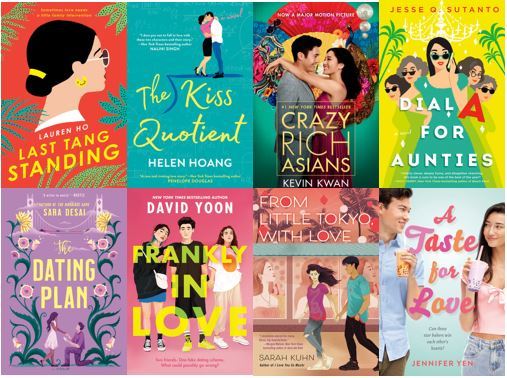
Friday Reads: Asian American Rom Coms
In the mood for some light-hearted, yet big-hearted escape this weekend? We are playing matchmaker! Look no further than these super popular new and bestselling Asian American romantic comedies for adult and young adult readers:
DIAL A FOR AUNTIES by Jesse Q. Sutanto
A hilariously quirky novel that is equal parts murder mystery, rom-com, and a celebration of mothers and daughters as well as a deep dive into Chinese-Indonesian culture set in Southern California, by debut author Jesse Q Sutanto.
CRAZY RICH ASIANS by Kevin Kwan
The basis for the hit movie!
When New Yorker Rachel Chu agrees to spend the summer in Singapore with her boyfriend, Nicholas Young, she envisions a humble family home and quality time with the man she hopes to marry. But Nick has failed to give his girlfriend a few key details. One, that his childhood home looks like a palace; two, that he grew up riding in more private planes than cars; and three, that he just happens to be the country’s most eligible bachelor. On Nick’s arm, Rachel may as well have a target on her back the second she steps off the plane, and soon, her relaxed vacation turns into an obstacle course of old money, new money, nosy relatives, and scheming social climbers.
THE KISS QUOTIENT by Helen Hoang
Stella Lane thinks math is the only thing that unites the universe. She comes up with algorithms to predict customer purchases—a job that has given her more money than she knows what to do with, and much less experience in the dating department than the average thirty-year-old. It doesn’t help that Stella has Asperger’s and French kissing reminds her of a shark getting its teeth cleaned by pilot fish. Her conclusion: she needs lots of practice—with a professional. Which is why she hires escort Michael Phan. The Vietnamese and Swedish stunner can’t afford to turn down Stella’s offer, and agrees to help her check off all the boxes on her lesson plan—from foreplay to more-than-missionary position…
LAST TANG STANDING by Lauren Ho
At thirty-three, Andrea Tang is living the dream: She has a successful career as a lawyer, a posh condo, and a clutch of fun-loving friends who are always in the know about Singapore’s hottest clubs. And if she’s about to become the lone unmarried member of her generation in the Tang clan—a disappointment her meddling Chinese-Malaysian family won’t let her forget—well, she doesn’t need a man to complete her. Yet when a chance encounter with charming, wealthy entrepreneur Eric Deng offers her a glimpse of an exciting, limitless future, Andrea decides to give Mr. Right-for-her-family a chance.
THE DATING PLAN by Sara Desai
Daisy Patel is a software engineer in San Francisco who understands lists and logic better than bosses and boyfriends. Ever the obedient daughter, she always follows the rules, but the one thing she can’t give her family is the marriage they expect. With few options left to her, and desperate to escape a parade of unwanted suitors, she asks her childhood crush to be her decoy fiancé. Without rules, these fake fiancés might accidentally fall for each other in this romantic comedy by the author of The Marriage Game.
FOR YOUNG ADULTS
FRANKLY IN LOVE by David Yoon
An Asian Pacific American Librarians Association Honor Book
Two friends. One fake dating scheme. What could possibly go wrong?
Frank Li has two names. There’s Frank Li, his American name. Then there’s Sung-Min Li, his Korean name. No one uses his Korean name, not even his parents. Frank barely speaks any Korean. He was born and raised in Southern California. Even so, his parents still expect him to end up with a nice Korean girl—which is a problem, since Frank is finally dating the girl of his dreams: Brit Means. Brit, who is funny and nerdy just like him. Brit, who makes him laugh like no one else. Brit…who is white. In his moving debut novel, David Yoon takes on the question of who am I? —with a result that is humorous, heartfelt, and ultimately unforgettable.
FROM LITTLE TOKYO, WITH LOVE by Sarah Kuhn
Celebrated author Sarah Kuhn reinvents the modern fairy tale in this intensely personal yet hilarious novel of a girl whose search for a storybook ending takes her to unexpected places in both her beloved LA neighborhood and her own guarded heart.
A TASTE FOR LOVE by Jennifer Yen
To her friends, high school senior Liza Yang is nearly perfect. But to her mom, Liza is anything but. Compared to her older sister Jeannie, Liza is stubborn, rebellious, and worst of all, determined to push back against all of Mrs. Yang’s traditional values, especially when it comes to dating. For fans of Jenny Han, Jane Austen, and The Great British Baking Show, A Taste for Love, is a delicious rom com about first love, familial expectations, and making the perfect bao.
For more on these and related titles (for kids and adults) visit the collection Asian American Rom Coms
#aapi#penguin random house#prh#there'sabookforthat#berkleybooks#asianamericanandpacificislanderheritagemonth#penguinrandomhouse
12 notes
·
View notes
Photo

Bridging the Gap.
Filmmaker So Yun Um highlights ten underrated Asian American and Pacific Islander films set against the backdrop of America.
Asian American and Pacific Islander Heritage Month has many film lovers seeking to celebrate Asian American cinema. Beyond Minari, Always Be My Maybe and Crazy Rich Asians, there are dozens of films that depict the Asian American experience. In choosing to focus on ten of the lesser-seen, I contemplated the notion of what defines AAPI cinema.
For me, it goes deeper than films that have been directed by, or star, Asian American and Pacific artists. Having watched a wide selection of Asian American films, I can firmly say our cinema, no matter the genre, puts Asian Americans at the forefront on both sides of the camera. I believe the essence of Asian American cinema was born out of resourcefulness, mining themes and ideas that distinctly bridge the gap between Asian and American culture. These films tell stories that explore the vast differences between the two, and the ways in which they coexist, whether comfortably or uncomfortably.
In selecting these ten underrated AAPI films, I searched deep to find stories with uncompromising vision and character; stories about Asians that could only be told within, and against the backdrop of, America. These ten films highlight intimate, distinct and unfiltered experiences mostly unseen at our local multiplexes: family and cultural obligations, generational and cultural gaps, and raw, mostly obscured views of American life.

Chan is Missing (1982) Directed by Wayne Wang, written by Isaac Cronin and Wayne Wang
There would be no Asian American independent cinema without Wayne Wang’s Chan is Missing. Shot on black-and-white film, this striking noir follows Jo, a San Franciscan cab driver, and his nephew, Steve, as they track down the titular Chan after he disappears with their money. Wang’s unpredictable directing career spans neighborhood intrigues, rom-coms and family movies; alongside which, he has kept a strong focus on Asian American stories (he helmed the adaptation of Amy Tan’s generational bestseller, The Joy Luck Club).
In Chan is Missing, for the first time on screen, we get to finally see an “ABC” (American-Born Chinese) story from the source, with an all-access pass to the often misunderstood terrain and people of Chinatown. It’s the tightness of the plot and the authenticity of its characters that make this movie such a classic. Even after 40 years, Chan Is Missing doesn’t feel dated—its laugh-out-loud dialogue (they actually utter the word “FOB”!) and moody tone capture why Chinatown continues to be an enigma. Spoilers: Chinatown runs by its own rules.
Available on DVD via Indiepix Films.
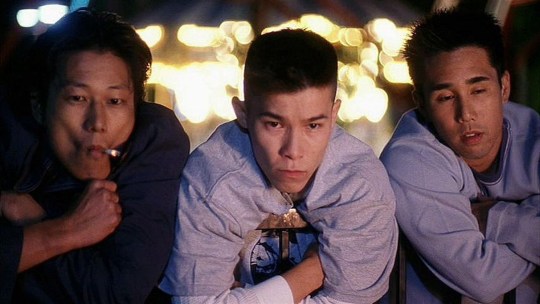
Better Luck Tomorrow (2002) Directed by Justin Lin, written by Ernesto Foronda, Justin Lin and Fabian Marquez
Justin Lin’s directorial debut film is a visionary portrait of Asian Americans that’s still relevant two decades on. Since its release in the early aughts, there has yet to be a film that explores the nuances and complexities of the average Southern-California Asian American teen like this film does. Better Luck Tomorrow focuses on a group of Asian American overachievers who become bored with their lives and enter a world of petty crime. It’s loosely based on four Sunny Hills High School students and the real-life murder of Stuart Tay, a teenager from the OC.
With its depiction of overachieving A+ students who are also foul-mouthed, drug-taking kids, this film was the launching pad for many iconic Asian American actors today—Sung Kang from the Fast and Furious franchise, John Cho (Star Trek) and my personal favorite, Jason Tobin, star of the Warrior TV series. (It’s entertaining to see the seeds of the Fast and Furious series planted in this film in the character of Han, played by Sung Kang, before the explosion of the franchise: one of the characters mutters, “Rumors about us came and went fast and furious”—and the rest is history.)
Better Luck Tomorrow still stands as the most iconic film to capture the suburban Asian American teen existence in all its good, bad and ugly light. “I was part of a movement,” Tobin recalled in this GQ oral history of the film, “and it was a culmination of all the battles I had fought before that to get Asian faces on the big screen.”
Available to stream and rent on multiple platforms.
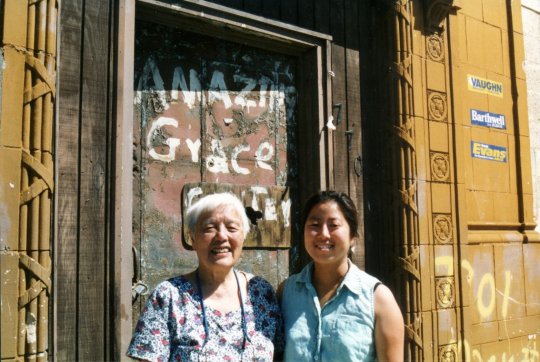
The Grace Lee Project (2005) Directed by Grace Lee
If you’re an Asian American who grew up in California or New York, chances are, you know at least two Grace Lees in your life. But growing up in Missouri, Korean American filmmaker Grace Lee was the only one she knew with her name. She soon discovers that with the name comes a certain stereotype, that of the “good” Asian—quiet, well-behaved and a hard worker. Lee goes on a quest to interview a wide range of women who have the same name and soon discover if this wildly common stereotype is true.
Lee’s witty, autobiographical documentary is effortlessly funny and insightful. The Grace Lee Project dives deep into identity politics to reveal that sometimes, a name is simply a name. This was the start of Grace Lee’s journey as a filmmaker and she continues to be an important voice in not just the documentary space but in narrative stories as well.
Streaming on Kanopy.
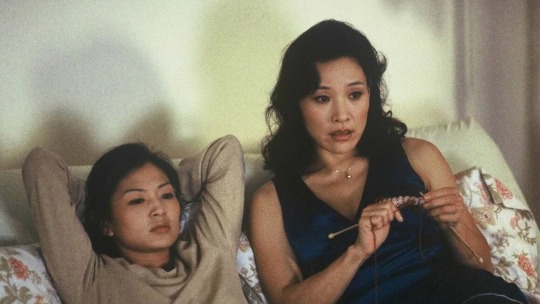
Saving Face (2004) Written and directed by Alice Wu
Alice Wu’s Saving Face is a timeless queer love story. Produced by none other than Will Smith (yes, that Will Smith), Saving Face follows a Chinese American lesbian woman and her traditional mother (played by Michelle Krusiec and Joan Chen, respectively) as both battle with their reluctance to go against cultural expectations and reveal their secret loves. It’s part family drama, part rom-com, exploring expectations specific to Asian women across generations.
While most Asian American films focus on familial obligations through the point of view of the children of immigrants, Wu’s film considers the conflicts of both daughter and mother. For Asian Americans, it’s a tale as old as time but with a twist that shows that no matter how old you get, you still have to, unfortunately, fight to be who you are. I also highly recommend Wu’s spiritual sequel, The Half of It, on Netflix.
Streaming on Amazon Prime and Tubi, and for rent on various VOD platforms.
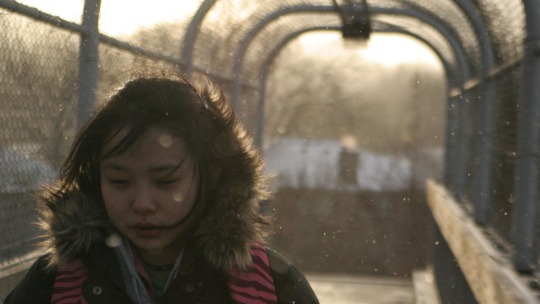
In Between Days (‘방황의 날들’, 2007) Directed by So Yong Kim, written by Bradley Rust Gray and So Yong Kim
So Yong Kim’s debut feature, In Between Days, follows Jiseon Kim, a Korean teen immigrant, who falls in love with her best friend while navigating the challenges of living in a new country. Director Kim is a masterful storyteller and captures life as it should be seen: unfiltered and trivial at times, but using the mundane to find cinematic magic.
I like to categorize So Yong Kim’s work as a showcase of extreme intimacy. Her story features painfully delicate characters and moments so real, you’ll wonder how any of these scenes could be fiction. There’s a sense of vulnerability and loneliness that fills the air as Jiseon struggles to assimilate to a new country, replete with toxic relationships, self-sabotage and unrelenting jealousy. So Yong Kim’s work is so painfully real, it hurts to watch.
Available on Kanopy and Amazon.
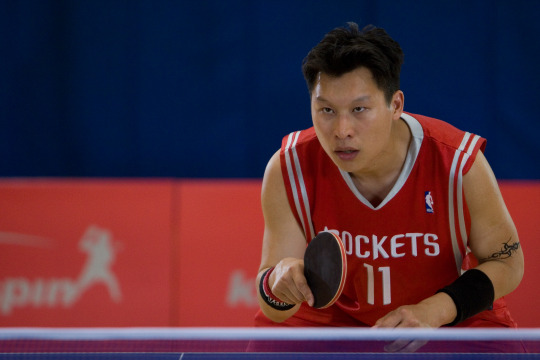
Ping Pong Playa (2007) Directed by Jessica Yu, written by Jimmy Tsai and Jessica Yu
There are two things that embody countless Asian American men’s experience: their love for basketball, and their love of rap music. Ping Pong Playa covers both, and is exactly the kind of Asian American comedy I’ve been waiting for! Christopher “C-Dub” Wang (played by co-writer Jimmy Tsai) is a wannabe baller and a supreme slacker who has to step up to the plate when his family’s business and ping-pong-champion reputation is on the line. In addition to being centered around an Asian family, the core of the film rivals any other low-brow, underdog sport film.
Laugh-out-loud hilarious, this is Academy-Award-winning filmmaker Jessica Yu’s first narrative feature, following a groundbreaking career full of daring documentaries (her Oscar was for this portrait of writer Mark O’Brien, who spent much of his life in an iron lung). Seeing C-Dub as an NBA-loving slacker turned ping-pong playa felt validating; it showed that even if you’re a lazy and immature Asian, you can always find something to succeed at.
Streaming on Tubi, and for rent on Amazon and iTunes.
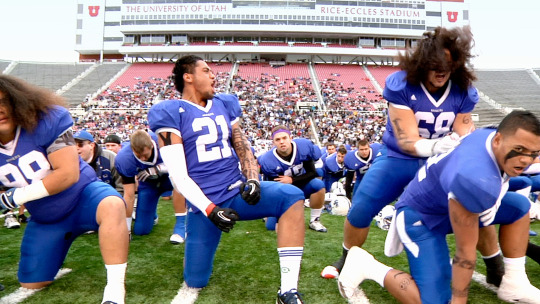
In Football We Trust (2015) Directed by Tony Vainuku and Erika Cohn
While Salt Lake City, Utah, is seen as predominantly a white Mormon town, it in fact has the largest population of Pacific Islanders in the US mainland, due to the strength of the The Church of Jesus Christ of Latter-day Saints’ proselytizing in the Pacific. The documentary In Football We Trust follows four Polynesian high-school students, as they chase their lifelong dream of attaining professional recruitment. Told in moments of adolescence, the film follows the greatest challenges for these four young men, as they chase their dreams while trying to grow up.
In no time, they’re faced with the harsh reality that just maybe, football isn’t all it’s cracked up to be. As much as their hefty attributes and builds serve as their greatest advantages, these boys’ cultural and familial obligations become both their greatest motivations and, possibly, their downfall. Filmed over the span of four years, first time filmmakers Tony Vainuku and Erika Cohn chronicle the NFL hopefuls as they navigate the pressure to balance dreams and family to win a golden ticket out of gang violence and poverty.
Streaming on Kanopy, and for rent on various VOD platforms.
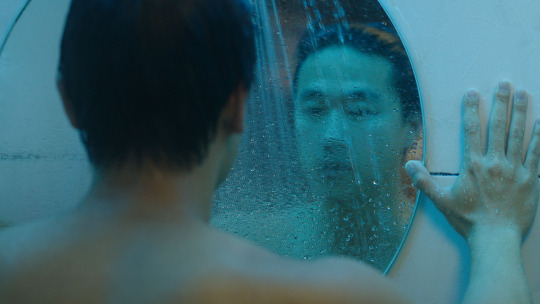
Spa Night (2016) Written and directed by Andrew Ahn
In his directorial debut, Andrew Ahn perfectly captures a specific corner of Los Angeles’ Koreatown. Spa Night’s focus is David, a closeted Korean American teenager who takes a job at a Korean spa to help his struggling family, and then discovers an underground world of gay sex. You may recognize Joe Seo as the goofy bully in the Netflix hit show Cobra Kai, but it’s Spa Night where you can see him truly shine—he won Sundance’s US Dramatic Special Jury Award for Breakthrough Performance.
Seo delivers a powerfully restrained performance, exploring the burden of hiding your true self from your family. Spa Night is more than a coming out story, it’s also about the broken American dream that so many immigrants experience. Ahn’s direction is finely tuned, honing in on the specificity of Koreatown. It is an acutely queer story of second-gen Asian Americans, where coming out is never really about just you, but also your family.
Streaming on Kanopy, and for rent on various VOD platforms.
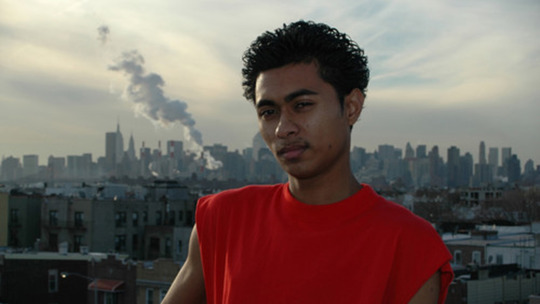
Punching at the Sun (2006) Directed by Tanuj Chopra, written by Tanuj Chopra and Hart Eddy
Mameet is young, angry and has always lived in the shadow of his basketball-legend brother, Sanjay. When Sanjay is suddenly killed during a robbery at the family store, Mameet spirals and takes his anger out on anyone and everyone. Coping with loss at a young age is hard enough, but Punching at the Sun mixes in the specific anxieties of being a South-Asian man amidst the backdrop of post-9/11 America. In doing so, the film addresses the difficulty of juggling teenage angst and immigrant identity—Mameet is not afforded the option to express his anger and grief.
Cathartic and emotionally validating, this is a simple yet nuanced slice-of-life story that conveys the heaviness of growing up with the weight of the world on our shoulders. In Mameet’s case, thank goodness, he ultimately shares some of that burden with his comical friends and knit-tight family.
Available to rent on Vimeo.
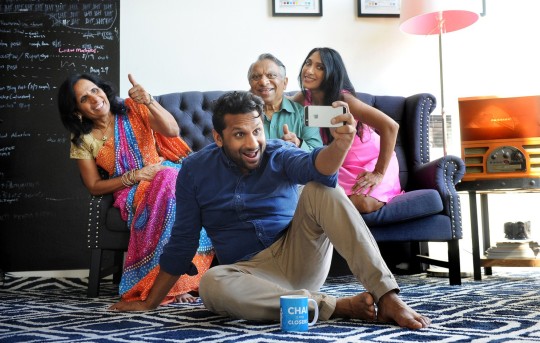
Meet the Patels (2014) Directed by Ravi Patel and Geeta Patel, written by Ravi Patel, Matthew Hamachek, Billy McMillin, and Geeta Patel
In the romantic documentary Meet the Patels, Ravi Patel is a dutiful first-gen son whose parents are continually nagging him to marry a nice Indian girl. With Ravi's sister Geeta Patel co-directing and co-writing, and his parents in the frame, his film (and true-life story) are indeed a family affair. What starts as his journey to find a wife to make his family happy becomes an enlightening intro to Indian culture and modern love—think dating apps, weddings and a Patel Matrimonial Convention (gotta see it to believe).
Humorous as it is outrageously charming, Meet the Patels ultimately shows the struggles and cultural expectations most immigrant offspring face, on top of the million other obstacles of trying to find your one and only true love in this mad, mad world.
Streaming on various platforms.
Related content
Ten Underrated Asian American & Pacific Islander Films, a Letterboxd list
Best Asian American Films: So Yun Um’s list
Debbie Chang’s comprehensive Asian American film canon list (also features Asian-Canadian, Asian-British and other diaspora)
Bellamy’s list of feature-length films directed by Asian Americans
Follow So on Letterboxd
#asian cinema#asian american#aapi#aapi heritage month#asian american film#asian american cinema#john cho#wayne wang#alice wu#pacific islander film#pacific islander cinema#chinese americ#korean american#chinese american#so yun um#female film critic#female filmmaker#directed by women#directed by asian women#letterboxd#ten best#underrated asian american cinema#jessica yu#andrew ahn
10 notes
·
View notes
Note
Could I request a Kiri scenario, (along with two other class 1-a characters that you choose :) ) where he’s got a fem s/o who was a child actress on broadway who transferred to UA for high school, who still occasionally does shows? Really specific but I’m in a mood lol :P
Kirishima, Todoroki, and Kaminari with a child/broadway star love!
Alright, this is the shit I’ve been waiting for all of my life! I’m so excited to write this you have no idea! Like, ugh, I’m bubbling with joy!!! Also, like I’m assuming that reader is a western star, so she’s not as known in Japan… idk man please don’t yell at me.
Kirishima

🍒He’s probably semi-aware of the western star scene, like he knows a few songs from there and he can recognize a few faces, but that’s about all he can do.
🍒How he initially finds out is by hearing her singing one of her old songs to herself while they were just hanging out. He recognizes her voice and is like, ‘oh cool, she sounds like that one American star.’
🍒He tells her how her voice is pretty and how she kind of sounds like one of his favorite American singers - who he can’t recall the name of
“Oh, yeah that’s me, haha.”
“Bi- wha- excuse me what?”
🍒He is so shocked, but also so amazed and proud and happy and its like - woah she’s so cool.
🍒Immediately compliments her on her voice, and tells her how amazing and talented she is - probably asks her a million questions about her life as a star.
🍒He’s just so surprised and so in awe and is just so happy for her.
🍒After he finds out he probably does some research about her career. What she did specifically, what fans she had, how famous was she.
🍒Dives deep into it and winds up spending his entire night listening to her music, watching her shows, looking at fan content - and he winds up falling in love with it.
🍒Tiredly tells her about it the next day and is excitedly telling her and the Bakusquad about how cool and talented she is.
🍒Other than that, he doesn’t really make a big deal about it, though, pretty aware of how stressful the attention a star gets can be. He doesn’t want her to have to go through that with her own class so he’s pretty quiet about it all.
🍒Asks her to sing for him when he can’t sleep, because her voice is just so soft and soothing and it’s like the only thing that can make him relax.
🍒Honestly, it doesn’t really affect his opinion of her all that much. She’s still his girlfriend, now she just so happens to be a western star. Cool.
🍒Which is a pretty cool thing for them, because something like that shouldn’t affect how she’s treated anyway.
Todoroki

🔥This boy doesn’t know anything about American culture, like at all. No clue. Nothing.
❄️So its simple to say that he has no clue who his girlfriend is, and probably never would’ve figured it out had she not pointed it out to him.
🔥It was so casual too, they wanted to find something to watch, and she requested that they watch an old recording of one of the musicals she did - and he was like ‘oh okay’ expecting it to be like a goofy middle school play.
❄️No, it was not a middle school play, it was a full on professional musical performance, with her as the big star in all of it. So, to say he was blown away was an understatement. He had no words for how he felt.
🔥When she asked what he thought he couldn’t even speak, he was just staring blankly at the screen trying to put a sentence together in his mind.
❄️When he finally did speak all he could manage was, “It was good.” He was just so awestruck he couldn’t function, and he needs some time alone to process what he just saw.
🔥Once he finally gets his thoughts together he goes to find his girlfriend and finally gets all his thoughts out on how amazing he thought she did and how interesting he found the show. He does ask if they could watch more together sometime - and of course they do.
❄️Other than that he isn’t all that vocal about it, he doesn’t really see it as that big of a deal, just a cute thing that his girlfriend does from time to time. So he probably mentions it causally one day to 1-A and everyone fucking looses their mind, like 1) they’re living with a star 2) He doesn’t even give a shit that his girlfriend is a star???
🔥The entire class then finds out that she’s in a show in Japan currently, and Todoroki was going to go and see it without them? Uh, no. Suddenly all of the class is at her show the night it opens, and she just has to act like its normal that her entire class knows about this thing she’s kept relatively secret since she came to Japan.
❄️Todoroki apologizes for letting it slip after the show, which she assures is totally fine, but maybe he should be more careful next time. Then she is torn away by her too impressed classmates and she’s unable to really be with him all night.
🔥When they finally get back to the dorms, she locks herself away in Todoroki’s room and finally relaxes in his arms. She’s just happy to get the affection from him, cause it what she’s been craving all night.
❄️The two of them cuddle the night away, and talk about mindless things, then just before she falls asleep she hears Todoroki whisper,
“You did great tonight...”
Kaminari

⚡️Chances are he probably knew she was on broadway, he just had no clue that it was her on broadway.
⚡️I mean he’s super invested in western pop culture, but he’s also very dense, so he probably knew who she was and just didn’t connect the dots.
⚡️When she mentions it so offhandedly in a conversation, like it was just an after thought, he freaking explodes and is just like: “Holy shit you’re her??? I love your stuff babe!!!”
“Then how come you didn’t recognize me dumbass?”
⚡️He wonders why she left to come to UA, not that being a hero is a bad thing to want, but why give up such an amazing life for this one?
⚡️She just explains calmly it wasn’t for her, and she would rather be here with him and helping people who need it most.
⚡️He finds that so freaking cool, like wow she’s pretty, talented, and selfless? I love her even more now!
⚡️After she explains that he totally asks for her autograph, and he absolutely frames whatever it is she signs.
⚡️It becomes and inside joke of sorts, because he wants her to sign everything like: “Babe, would you sign my coffee mug?”
“Of course, I’d be more than happy to!”
⚡️Everyone else is weirded out by it, but neither of them seem to care at all. It’s almost cute.
⚡️He does a lot of bragging about it too, like “Oh, did you know my girlfriend a super famous star in the west? Isn’t she just the freaking best, don’t you just love her?”
⚡️Yes Denki, now shut up please.
⚡️But for real, he thinks she is just the coolest freaking person ever, and he will never stop telling her that because she needs to know.
⚡️”Babe, you’re the best. You know that?”
“Yes, you told me literally ten seconds ago.”
⚡️She’ll never tell him to stop, though, it’s way to freaking cute to stop.
A/N: I’m so sorry about this, it’s awful and I know it. I hope you can forgive me and enjoy it for what it is? Again I’m so sorry.
#bnha x reader#mha x reader#mha headcannons#bnha headcannons#headcannons#bnha#mha#kaminari x reader#todoroki x reader#kirishima x reader#x reader#eijirou x reader#shouto x reader#denki x reader#kaminari#denki#kaminari denki#denki kaminari#kirishima#eijirou#kirishima eijirou#eijirou kirishima#todoroki#shouto#todoroki shouto#shouto todoroki
115 notes
·
View notes